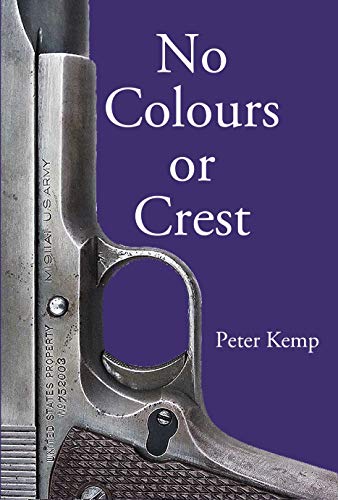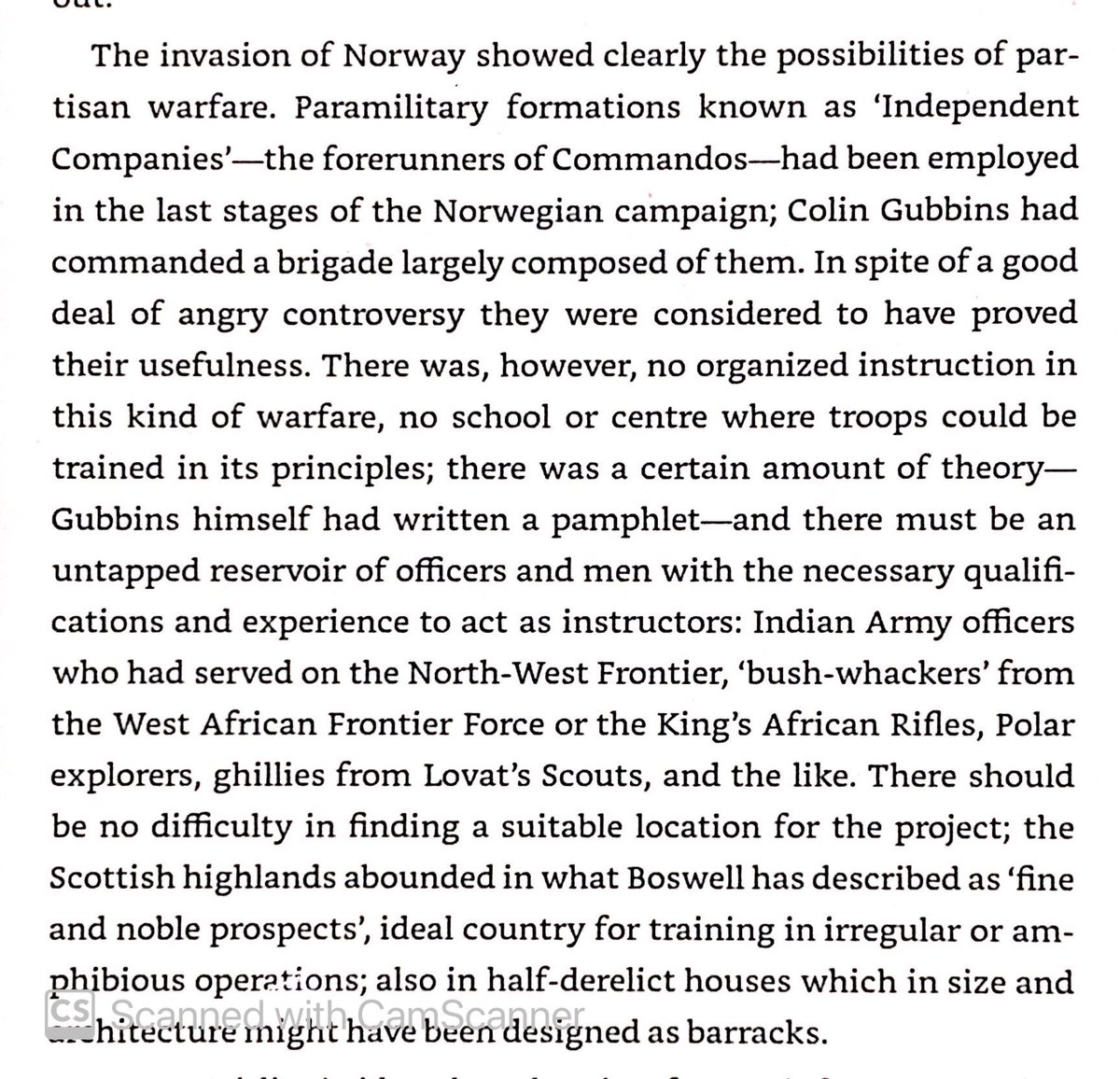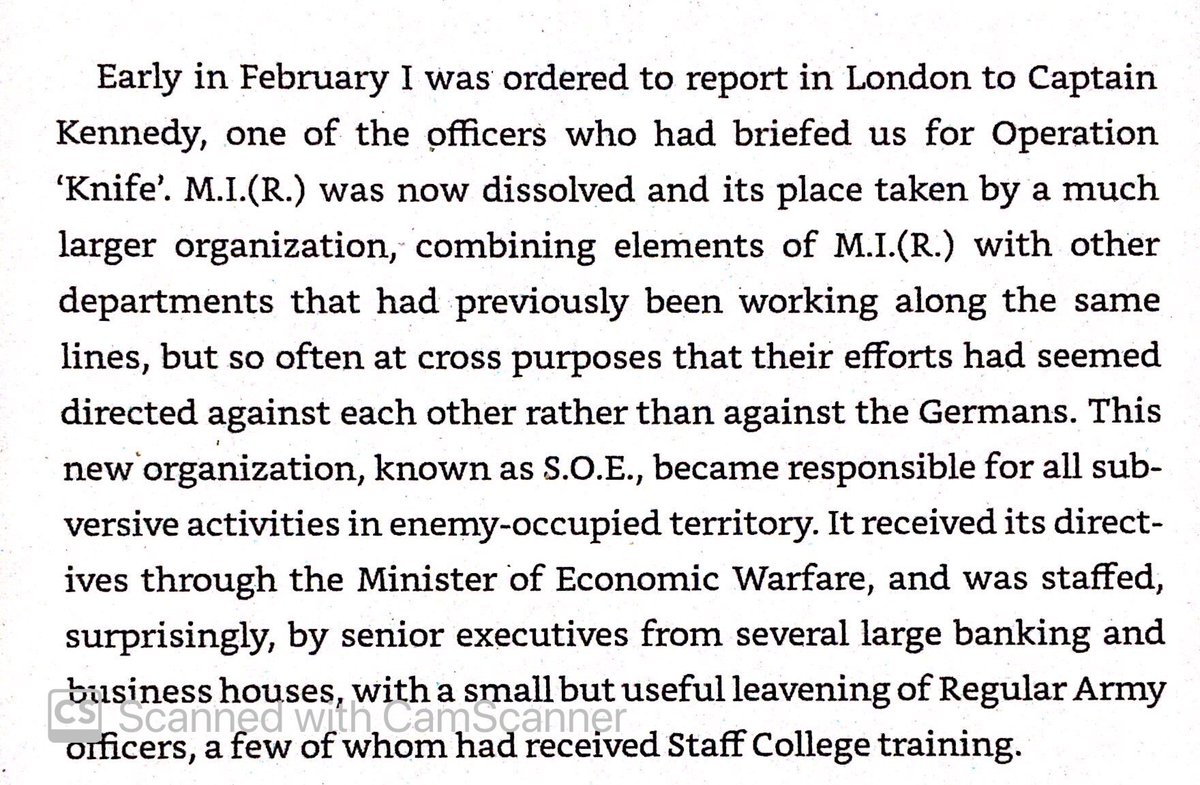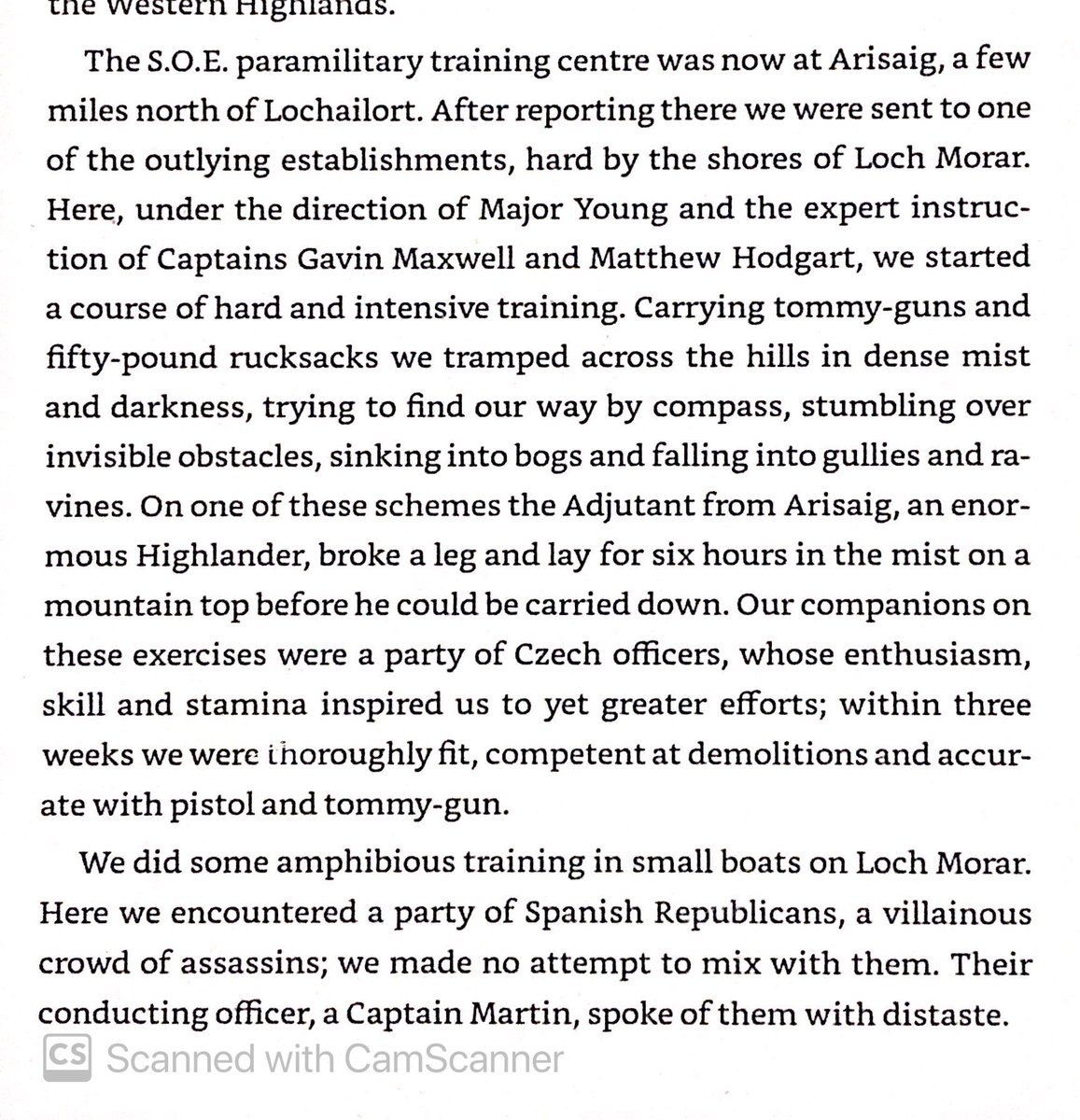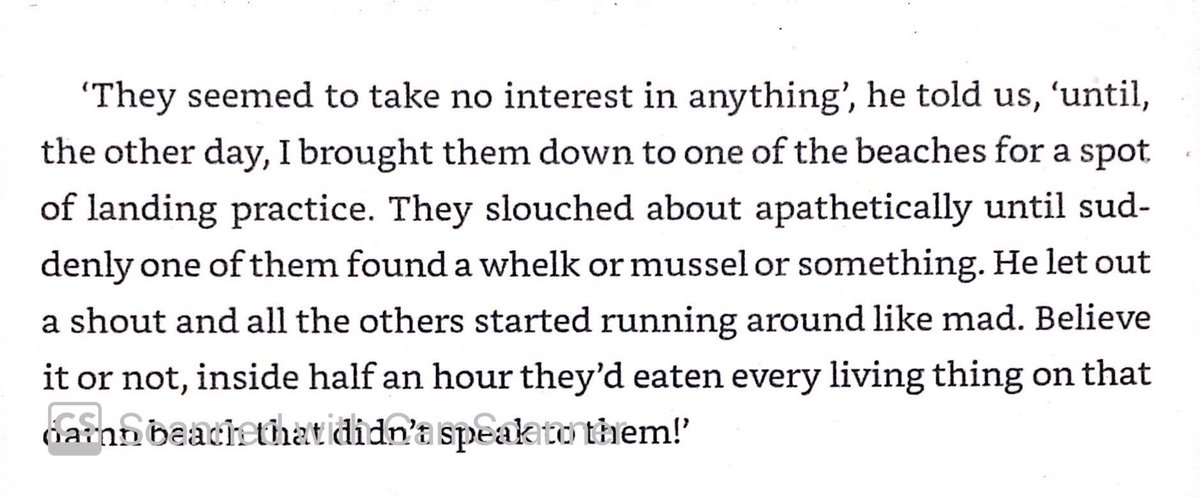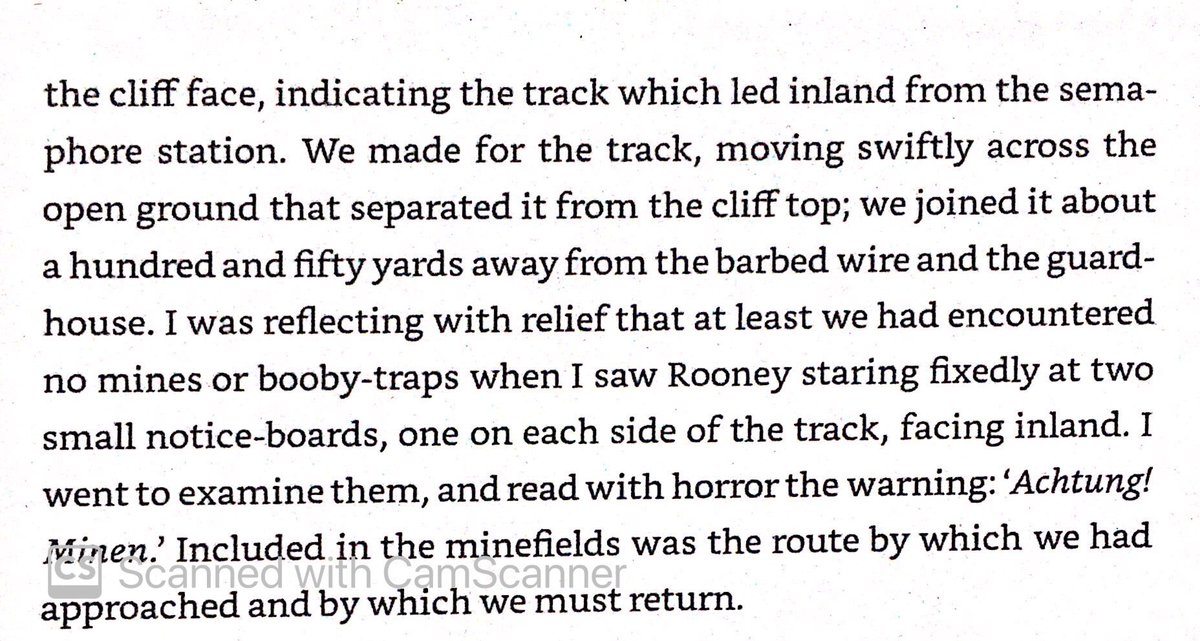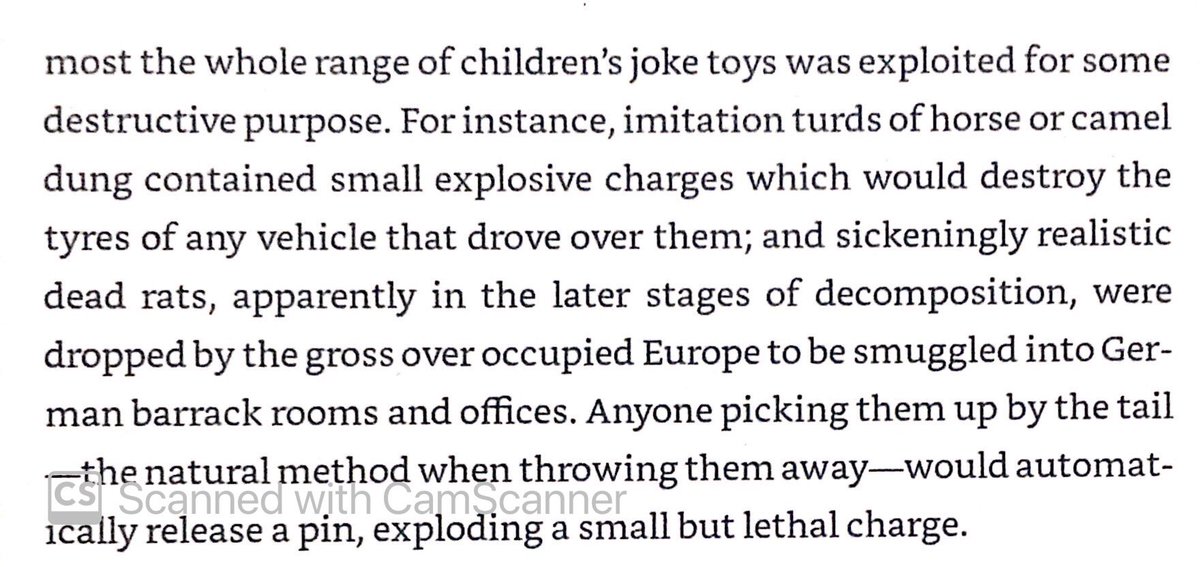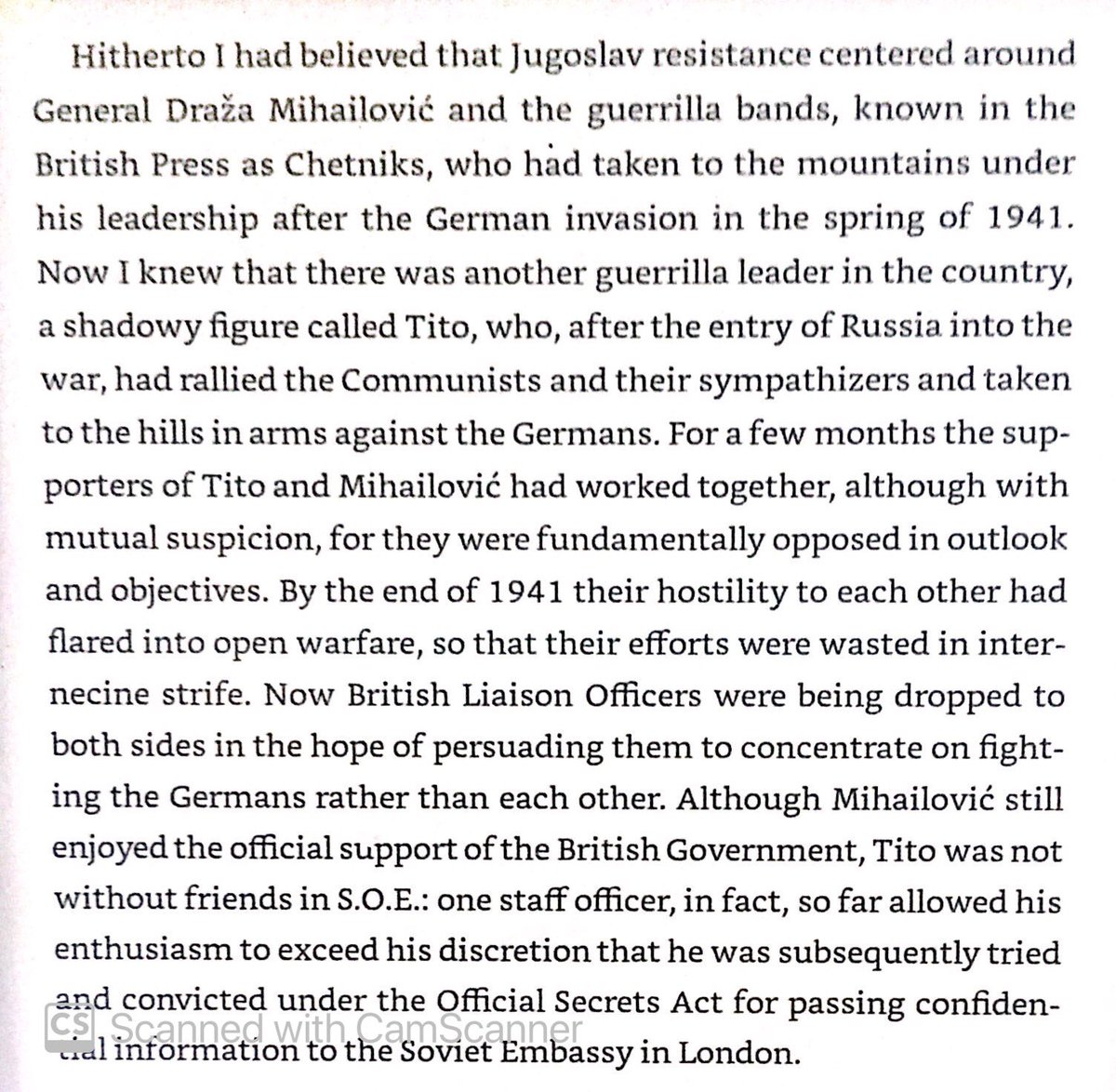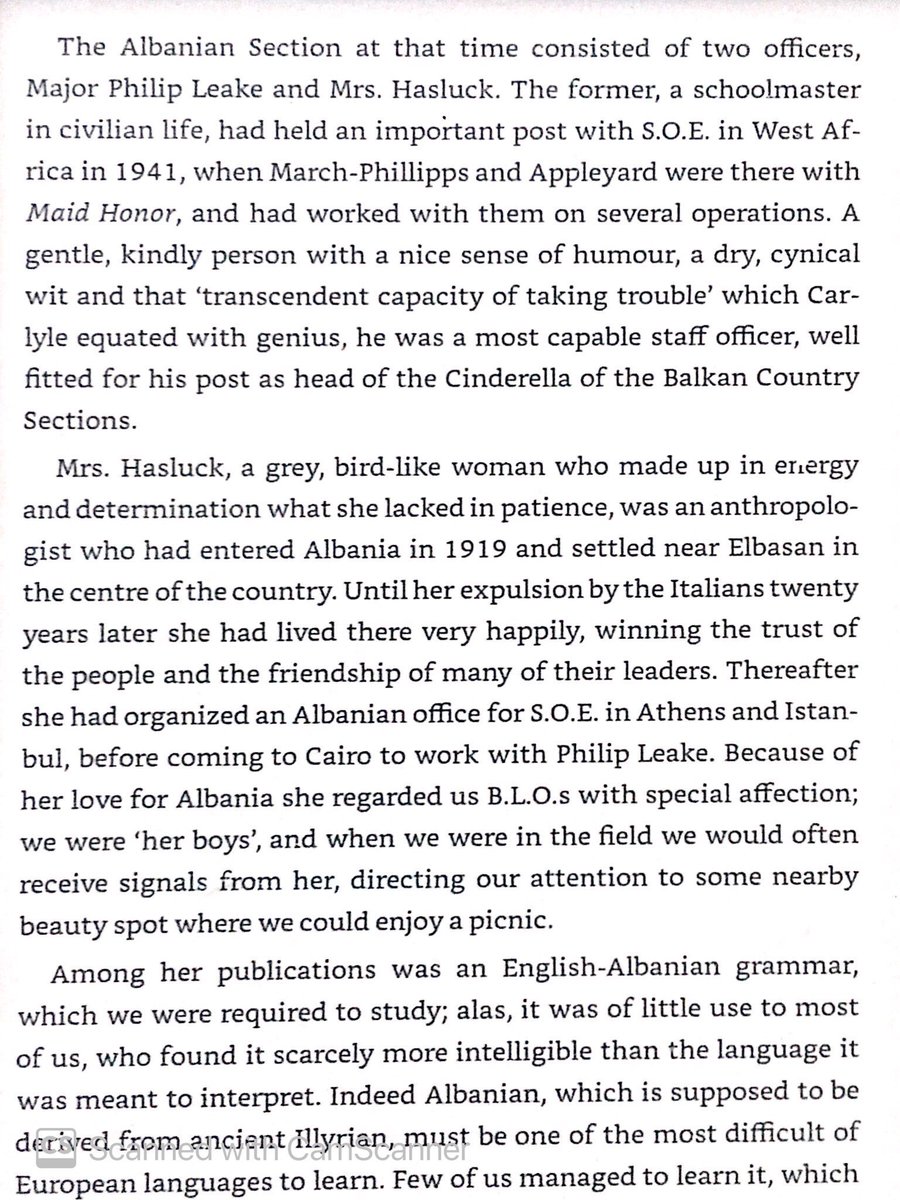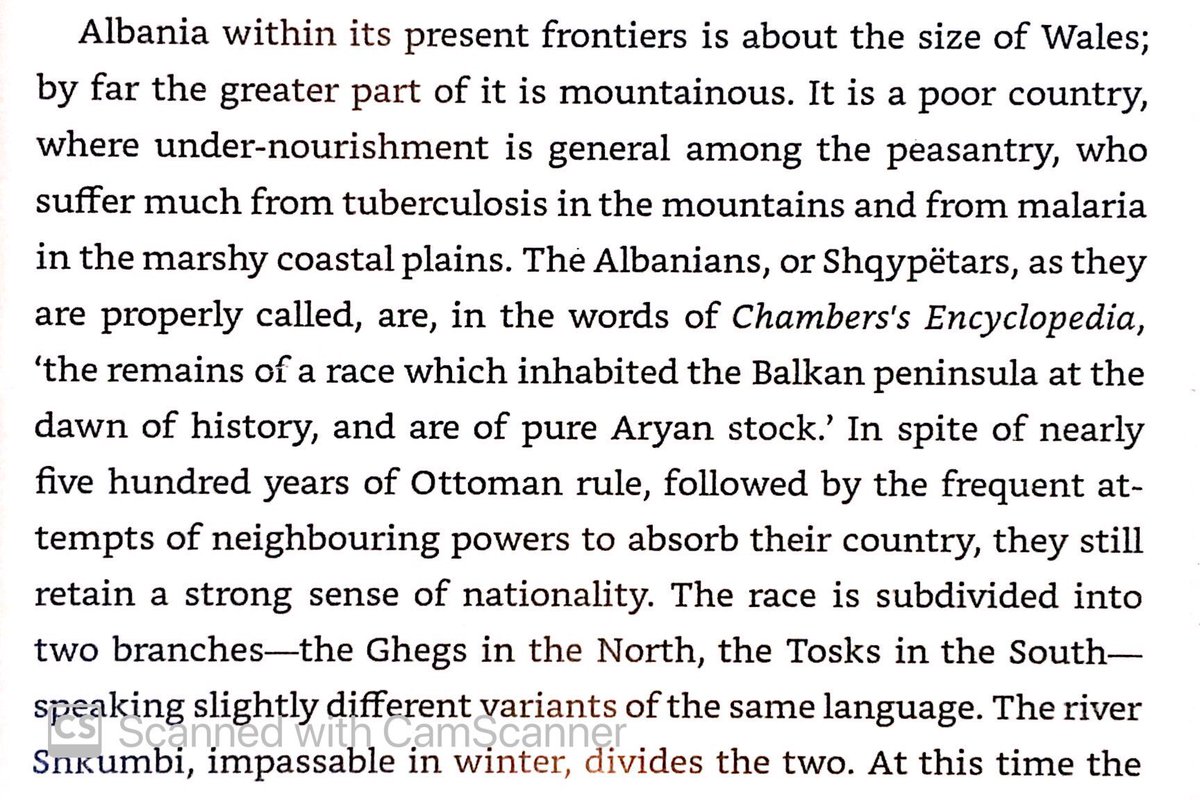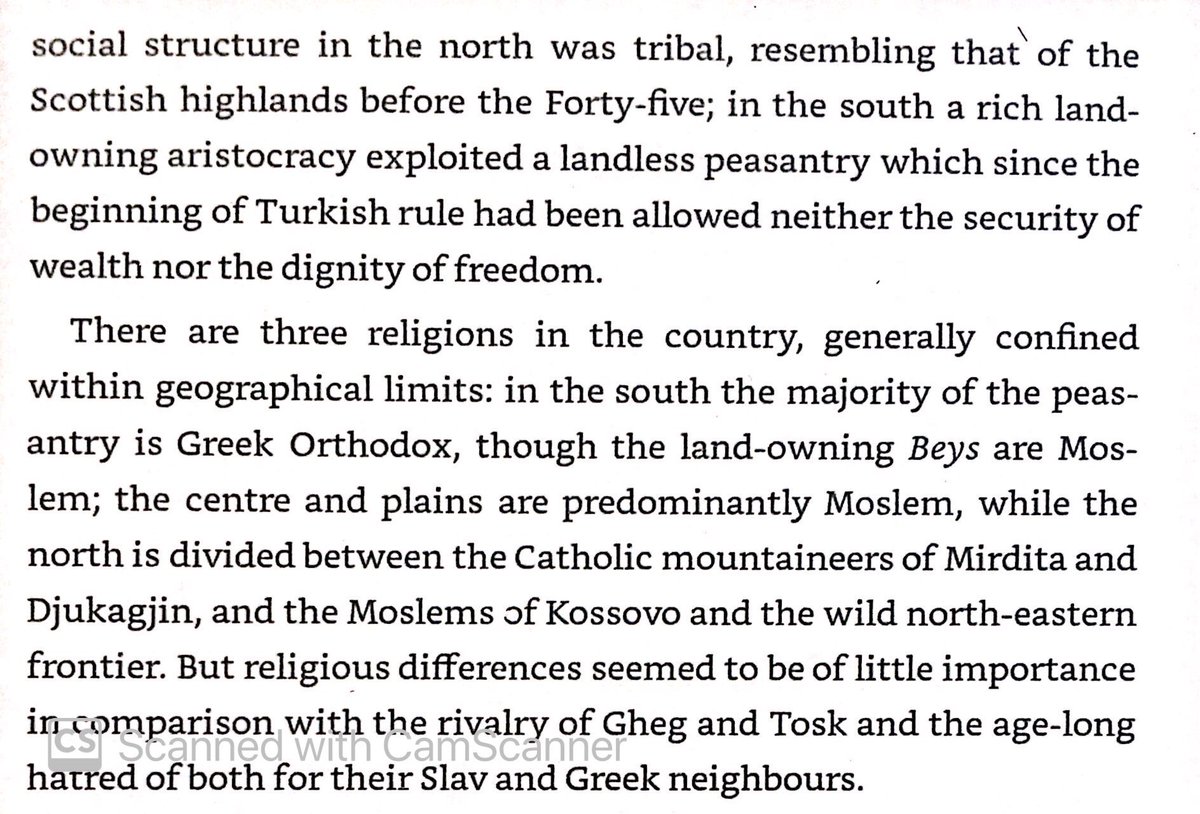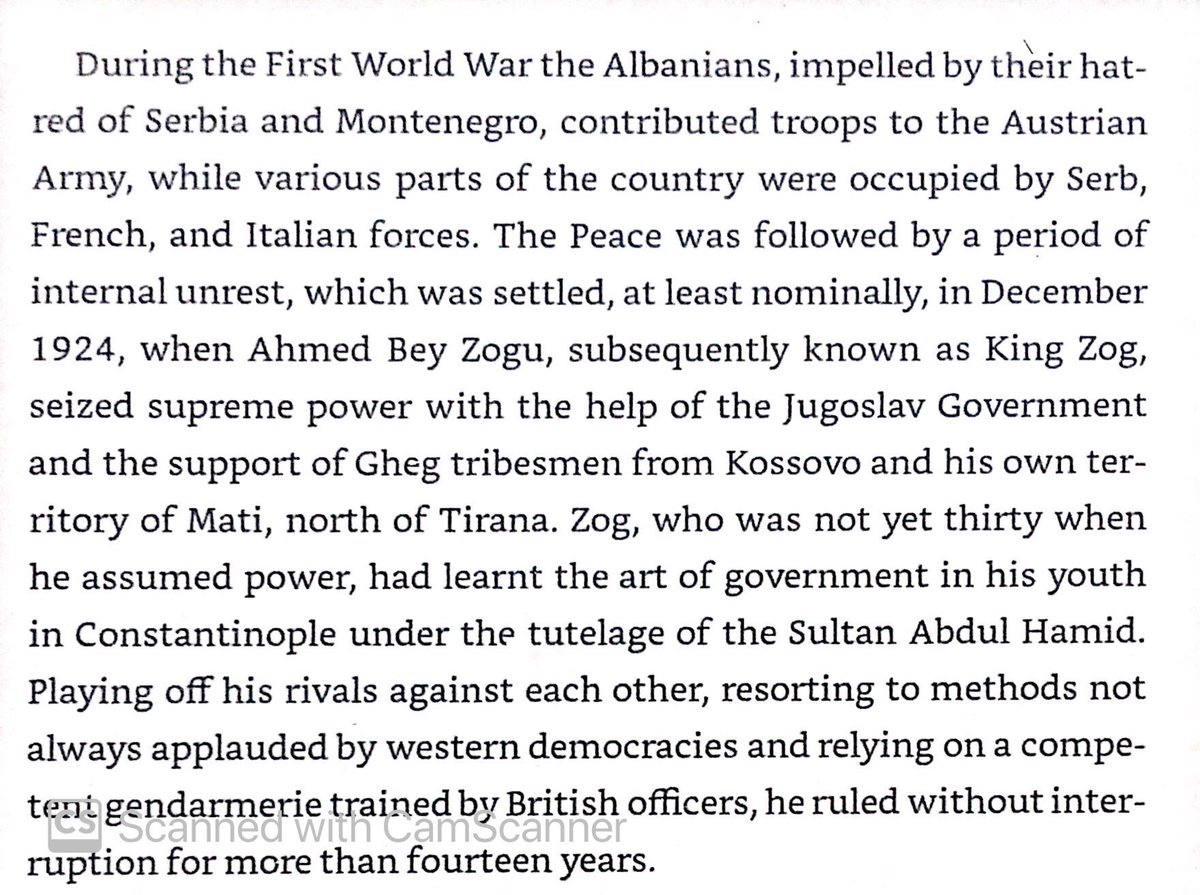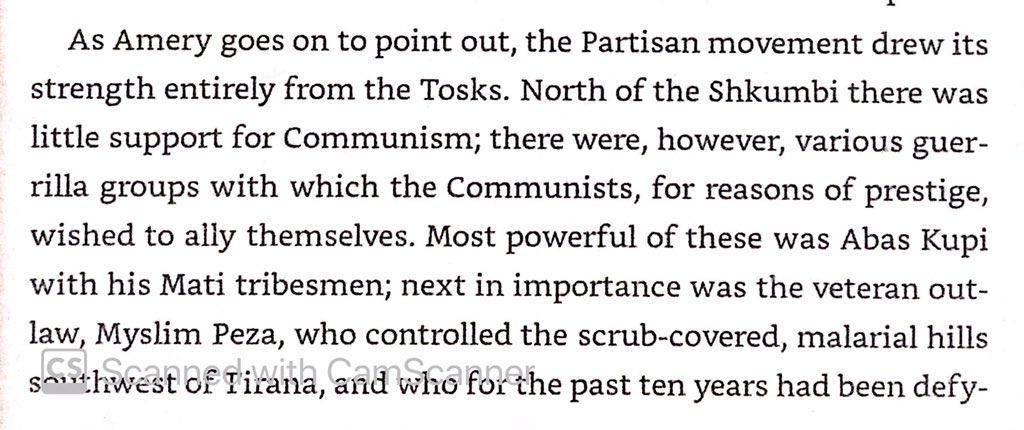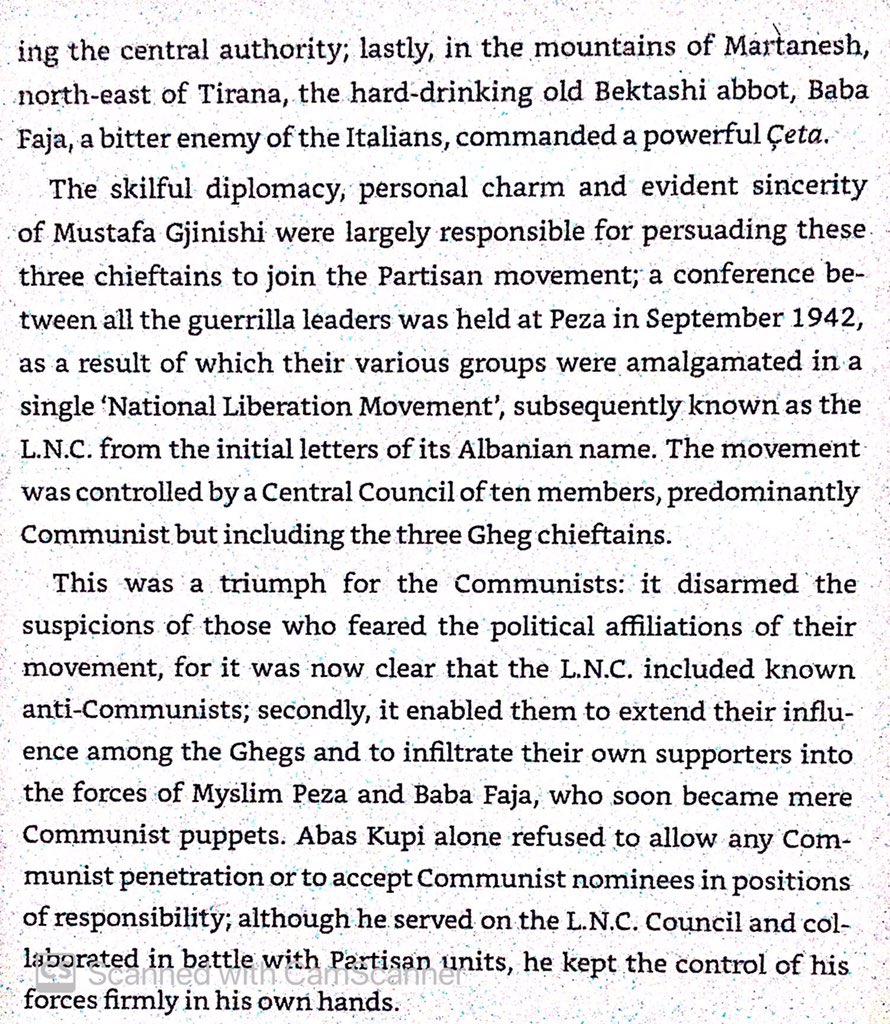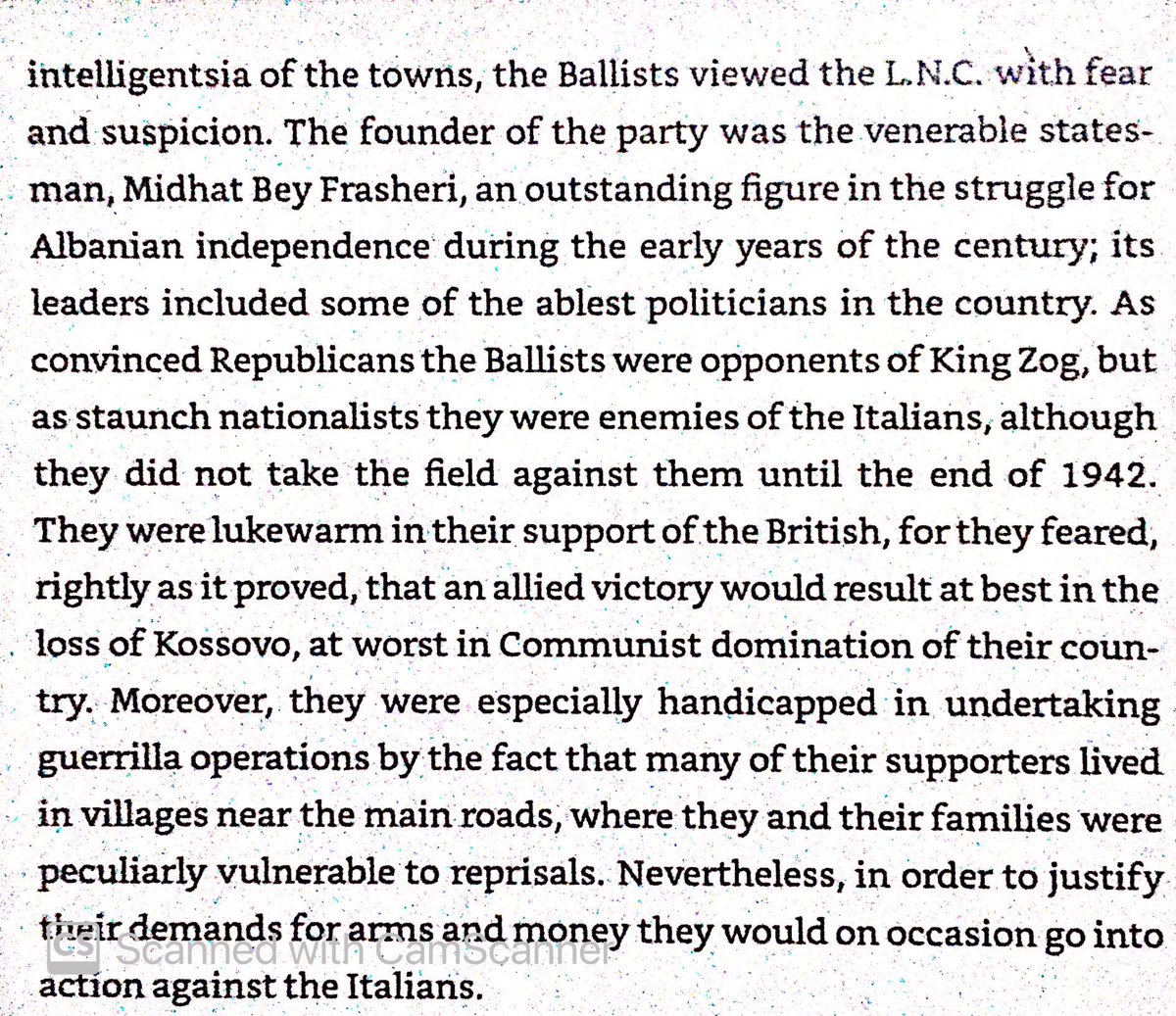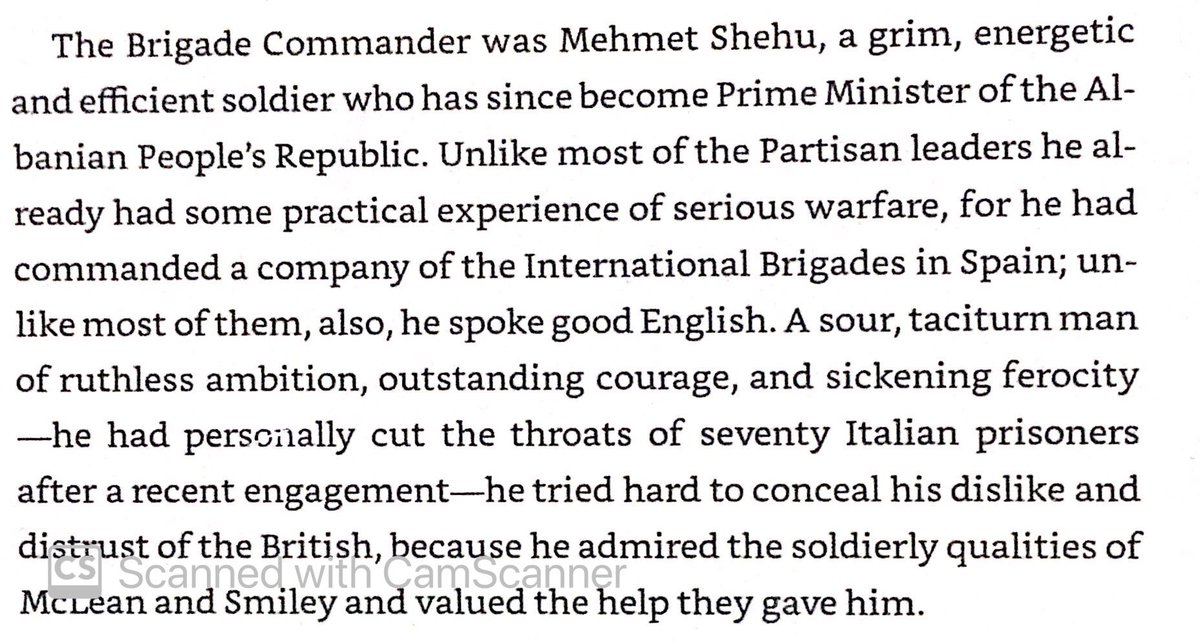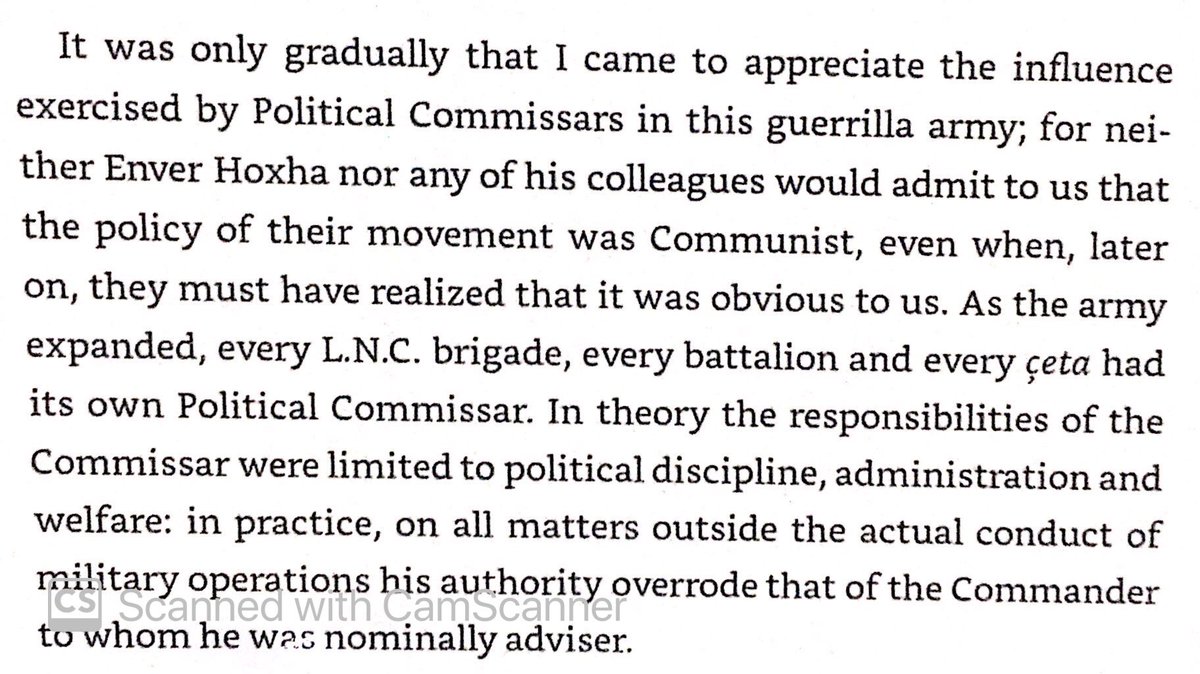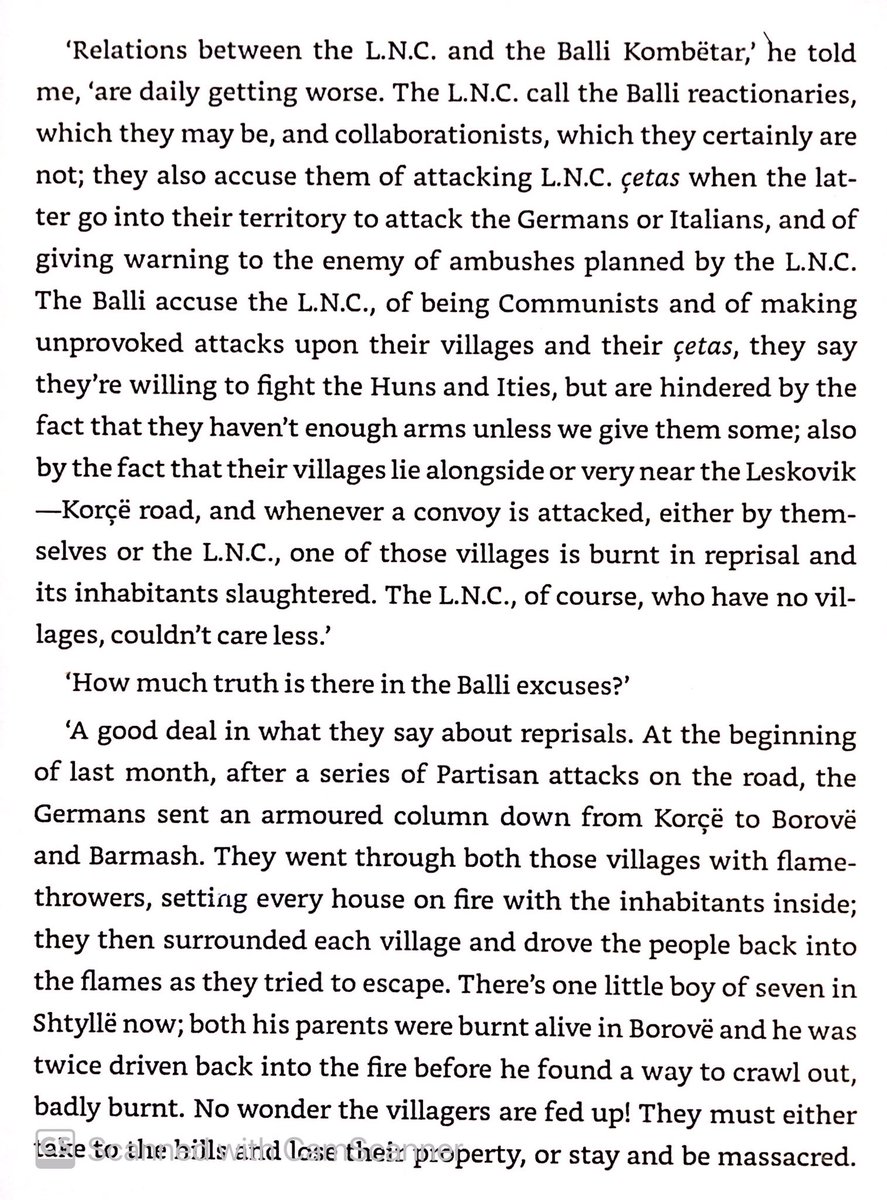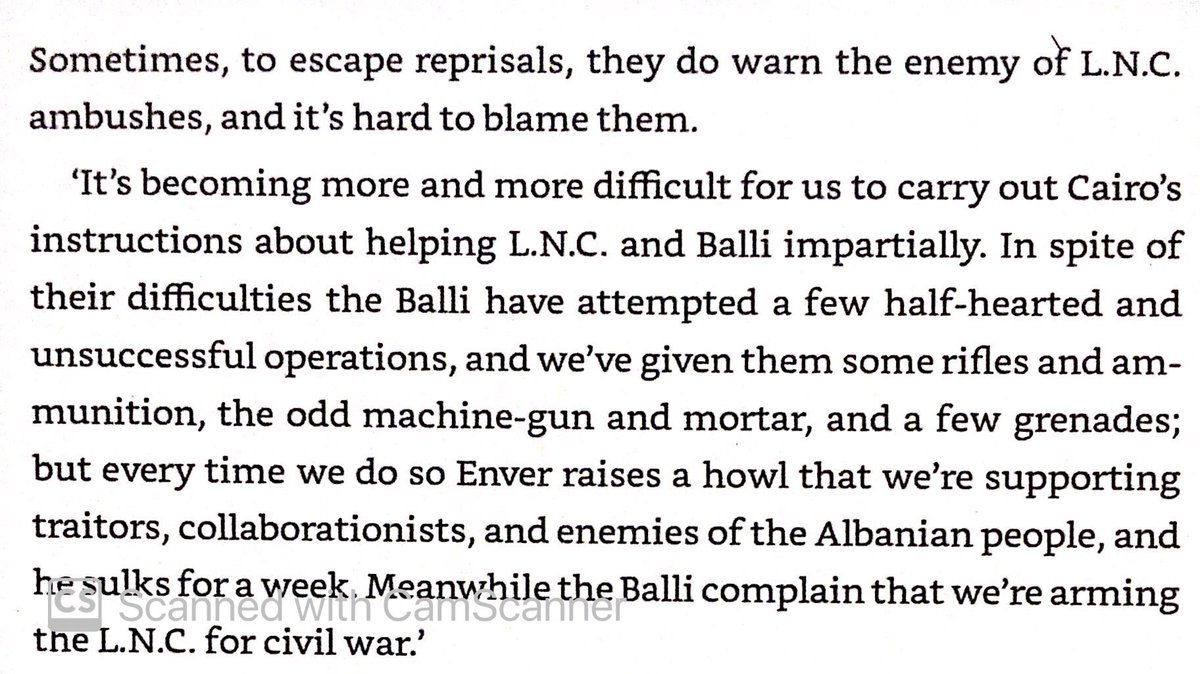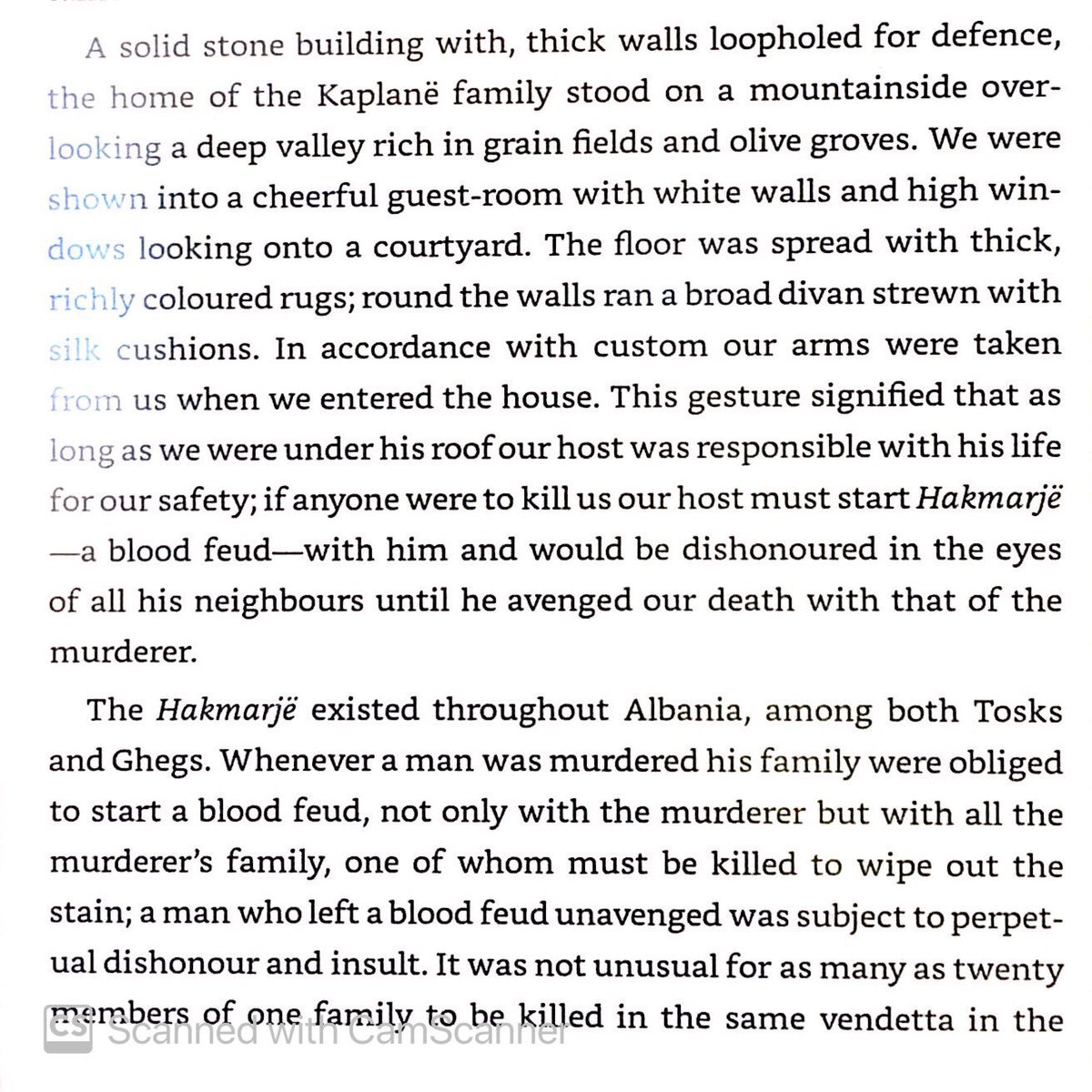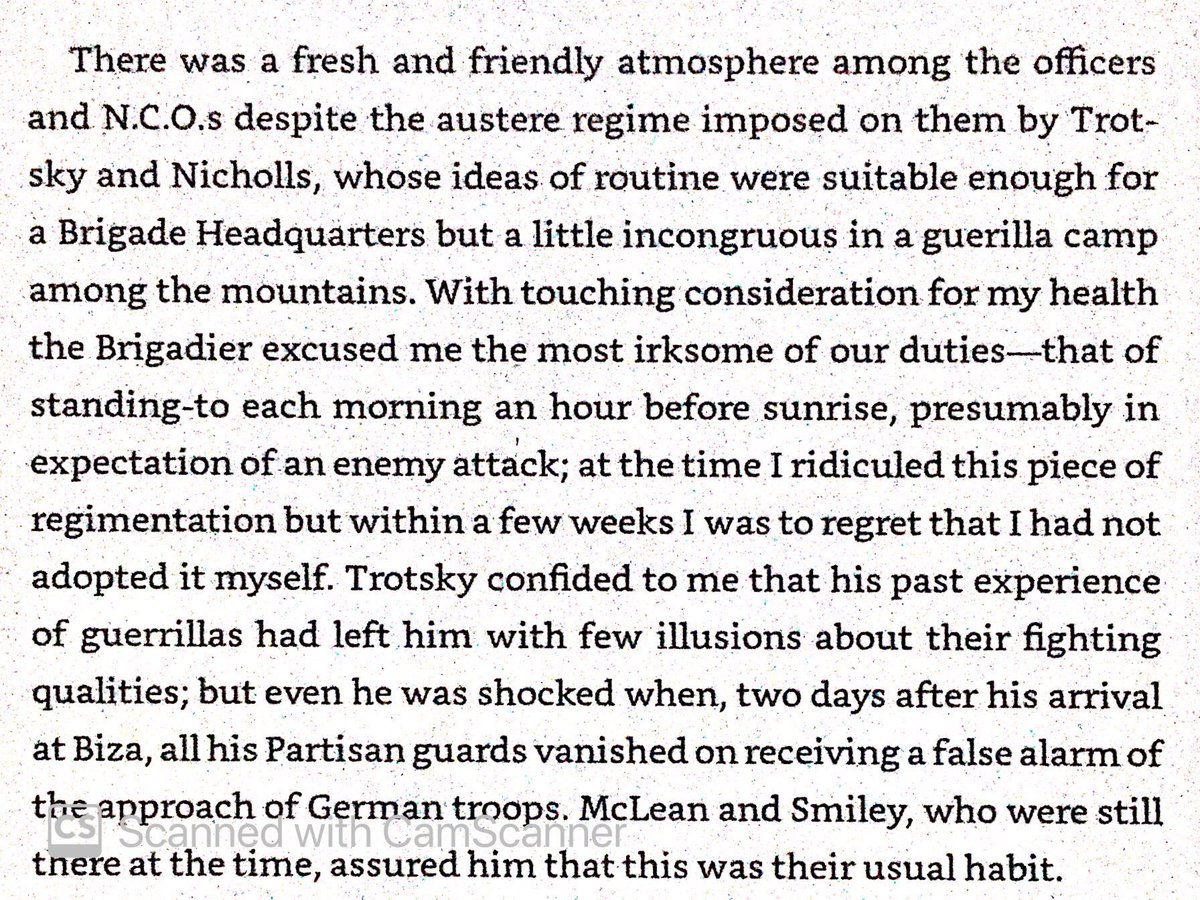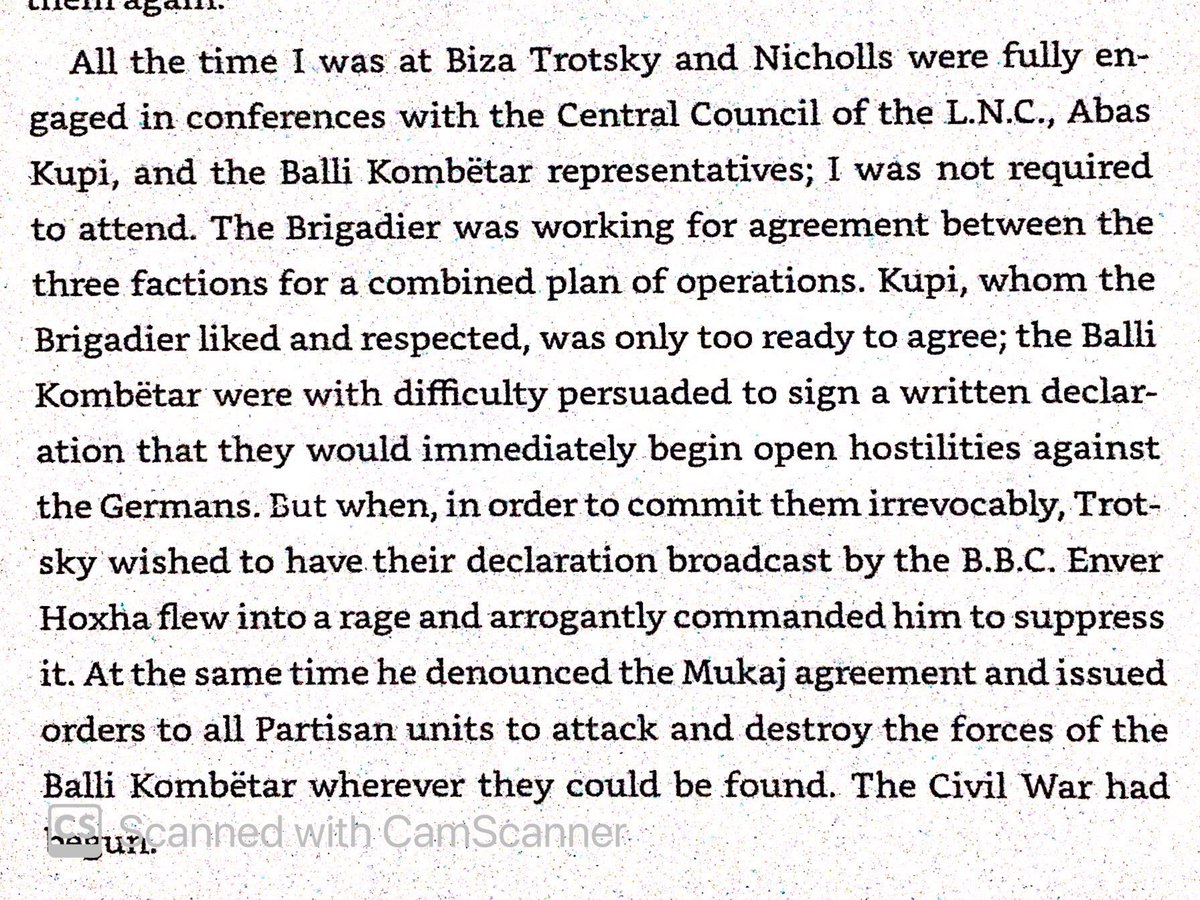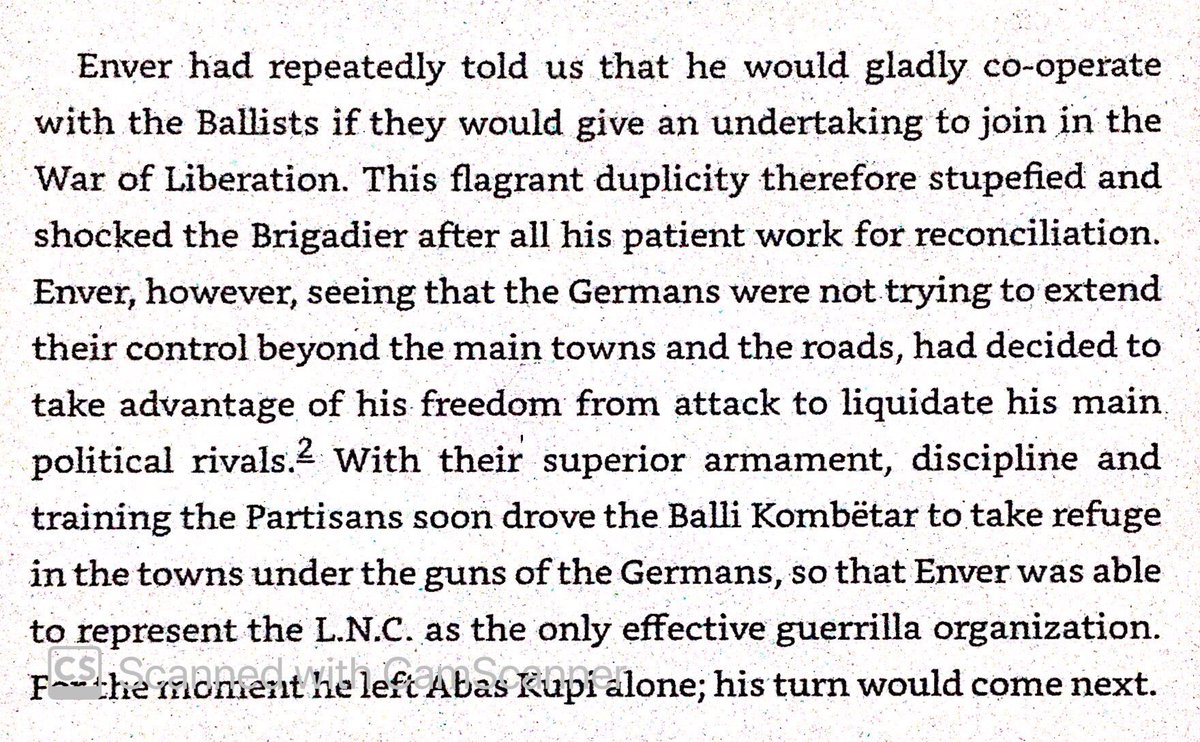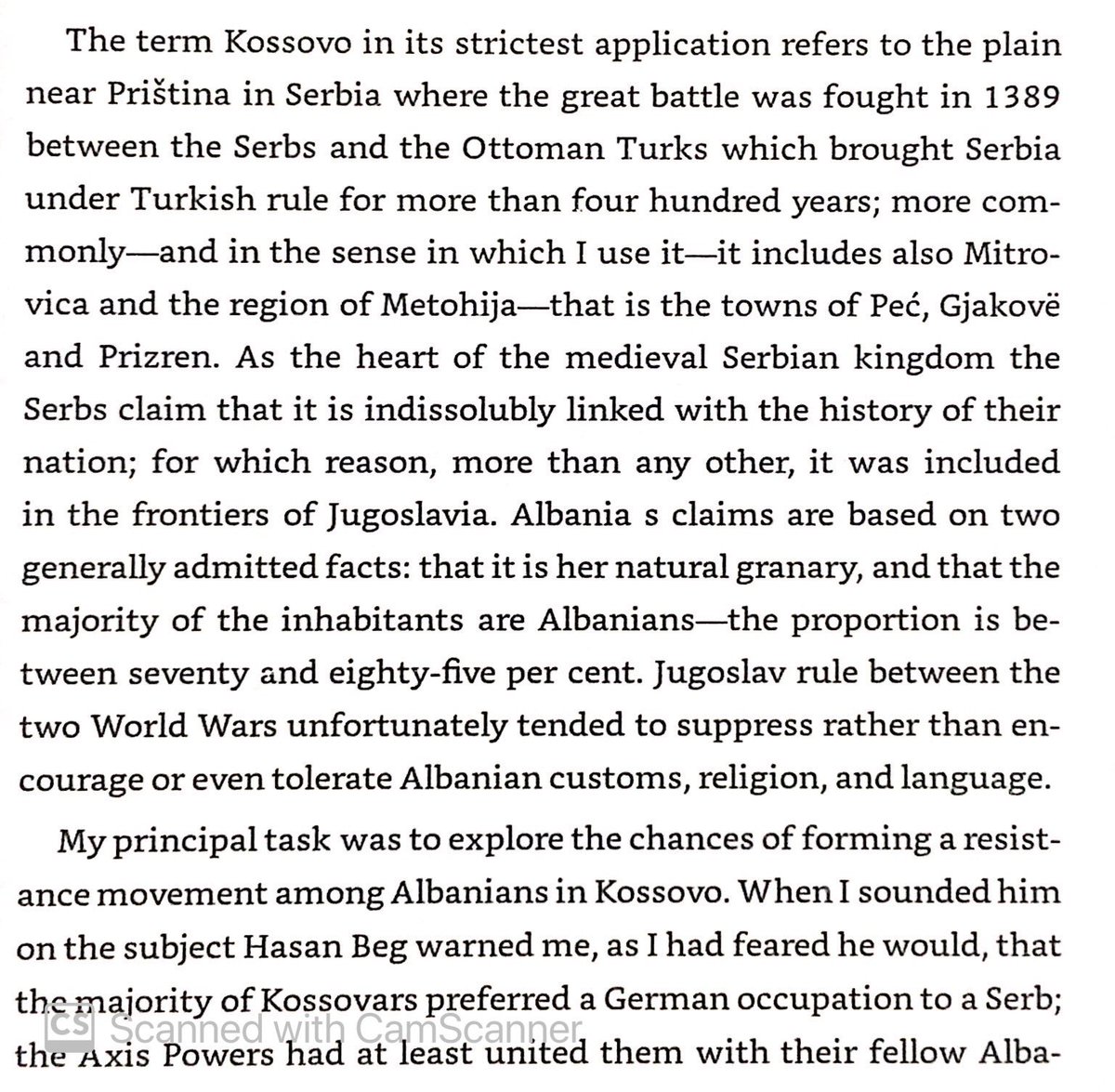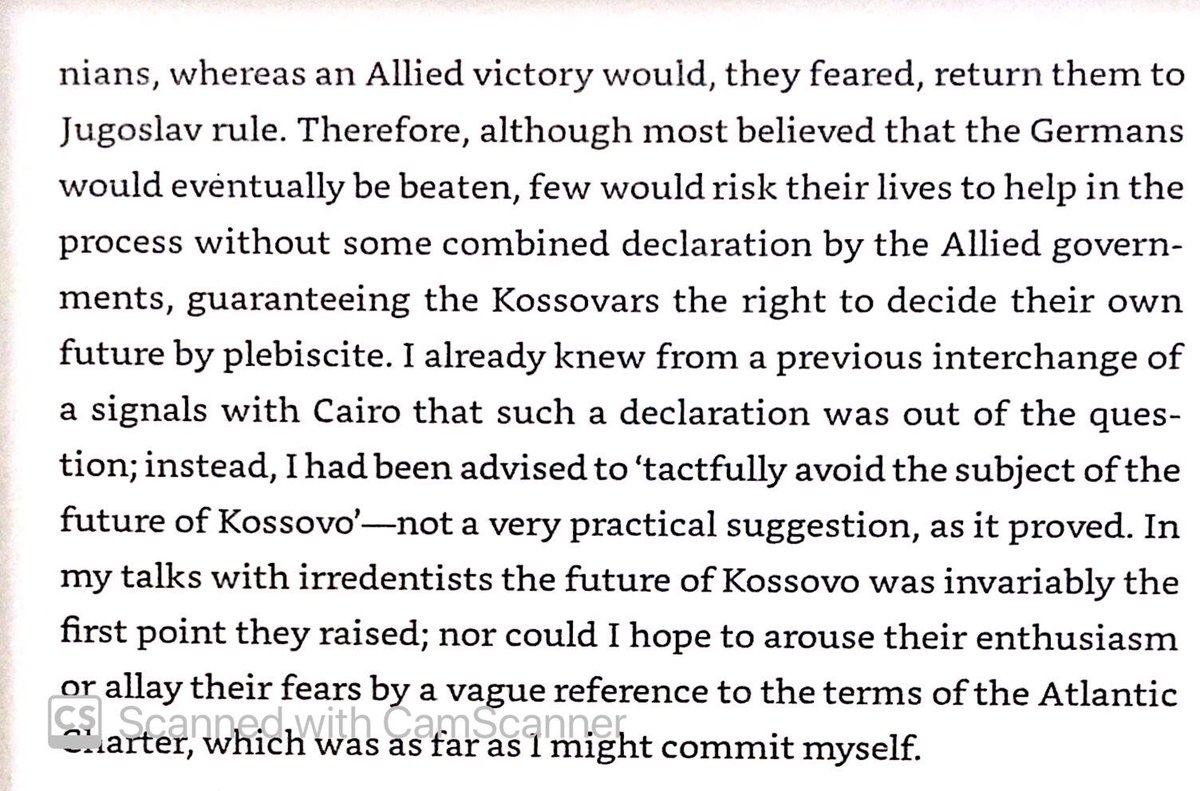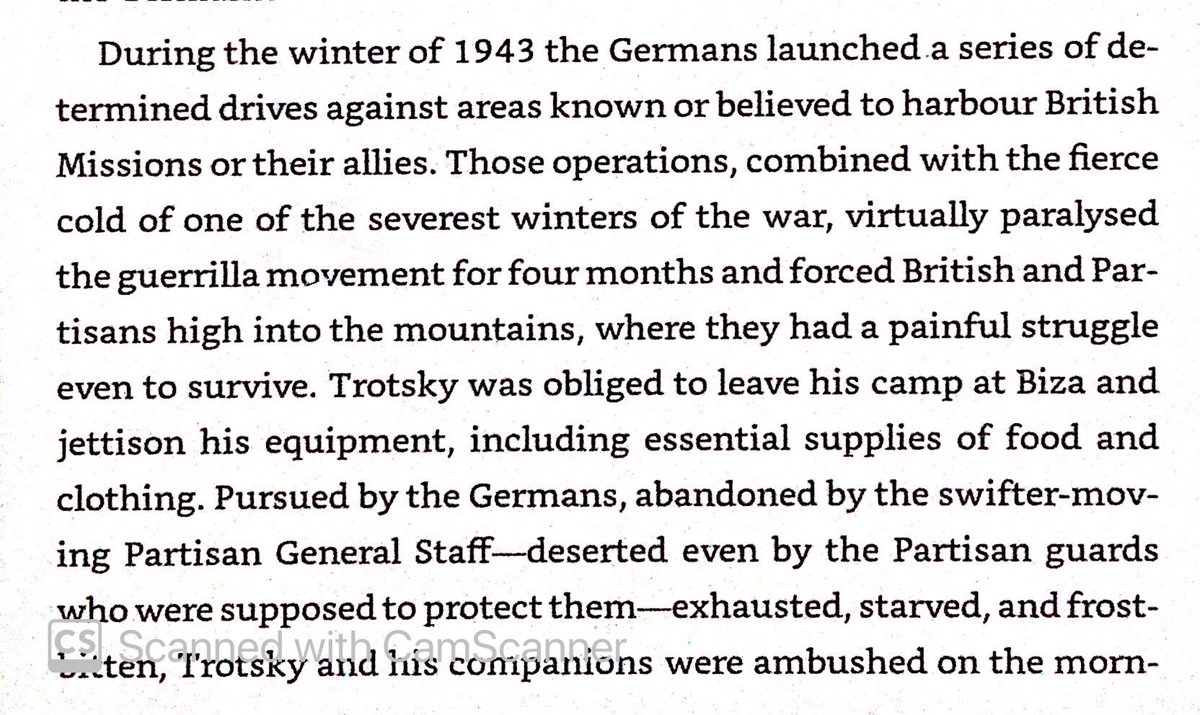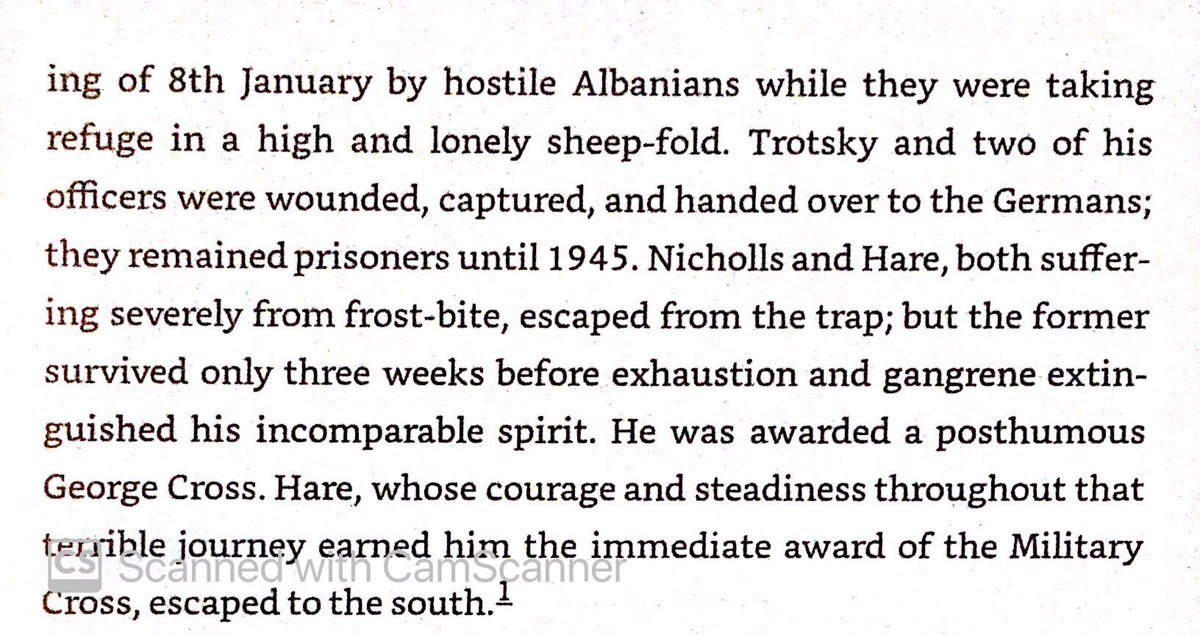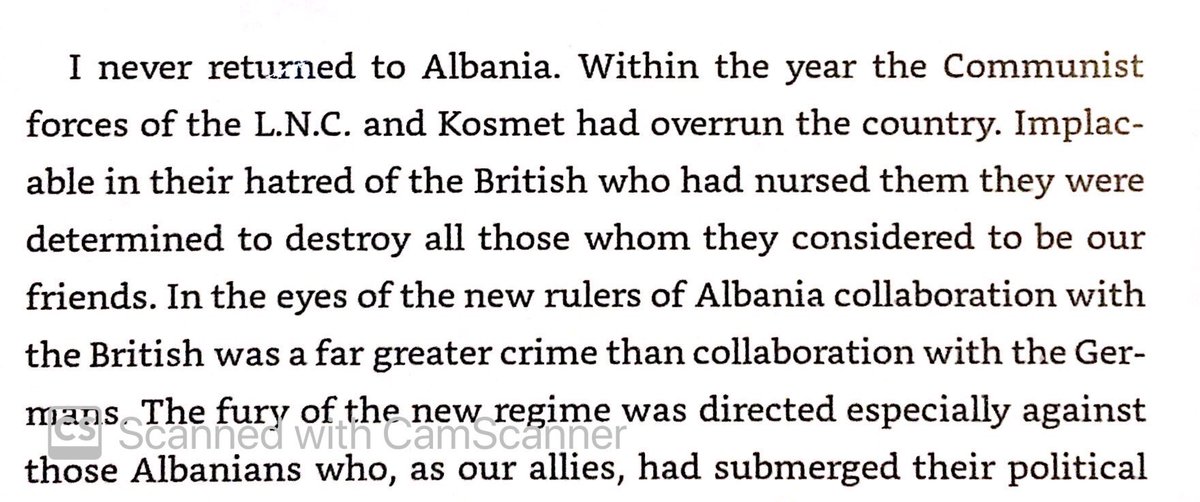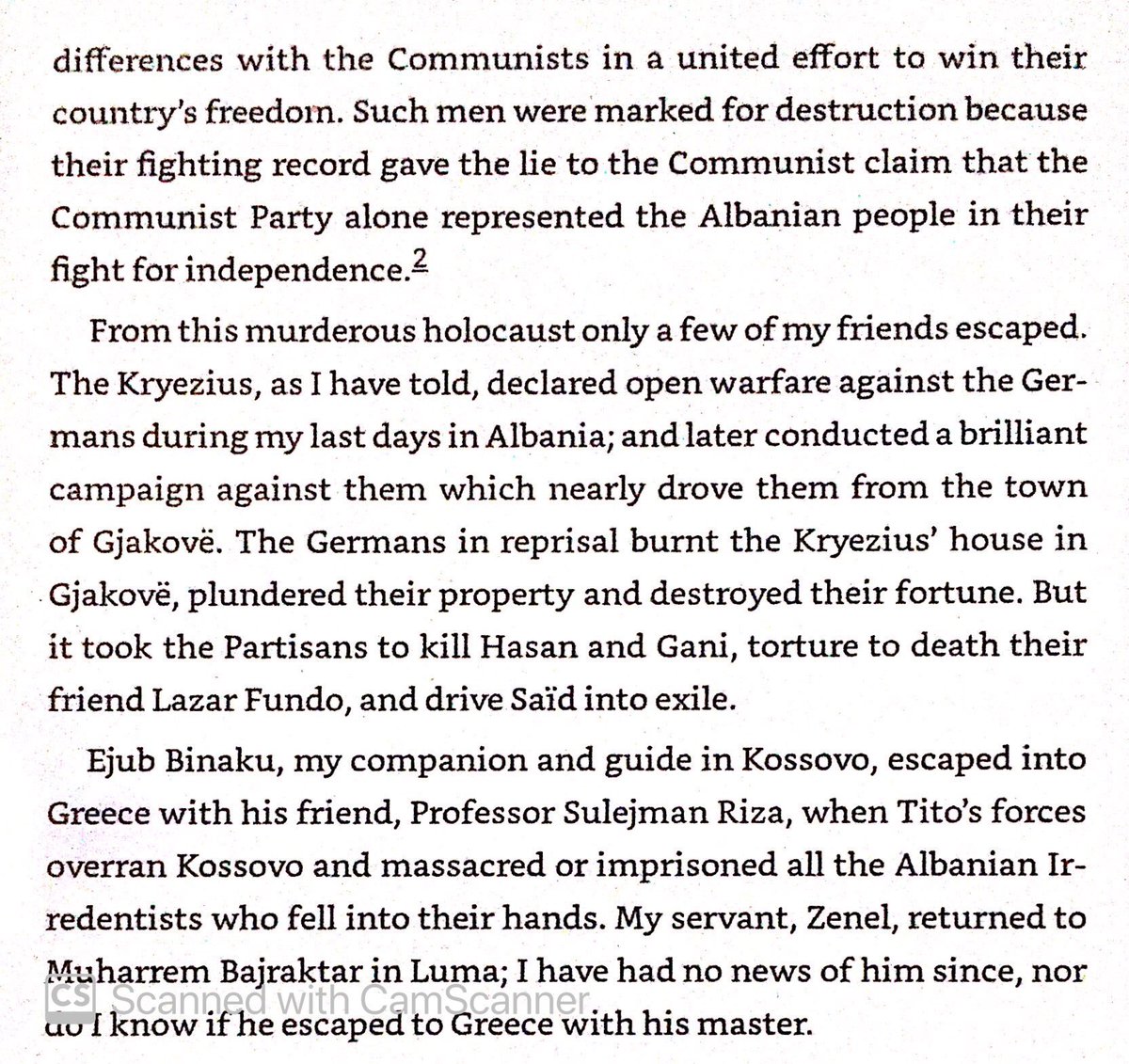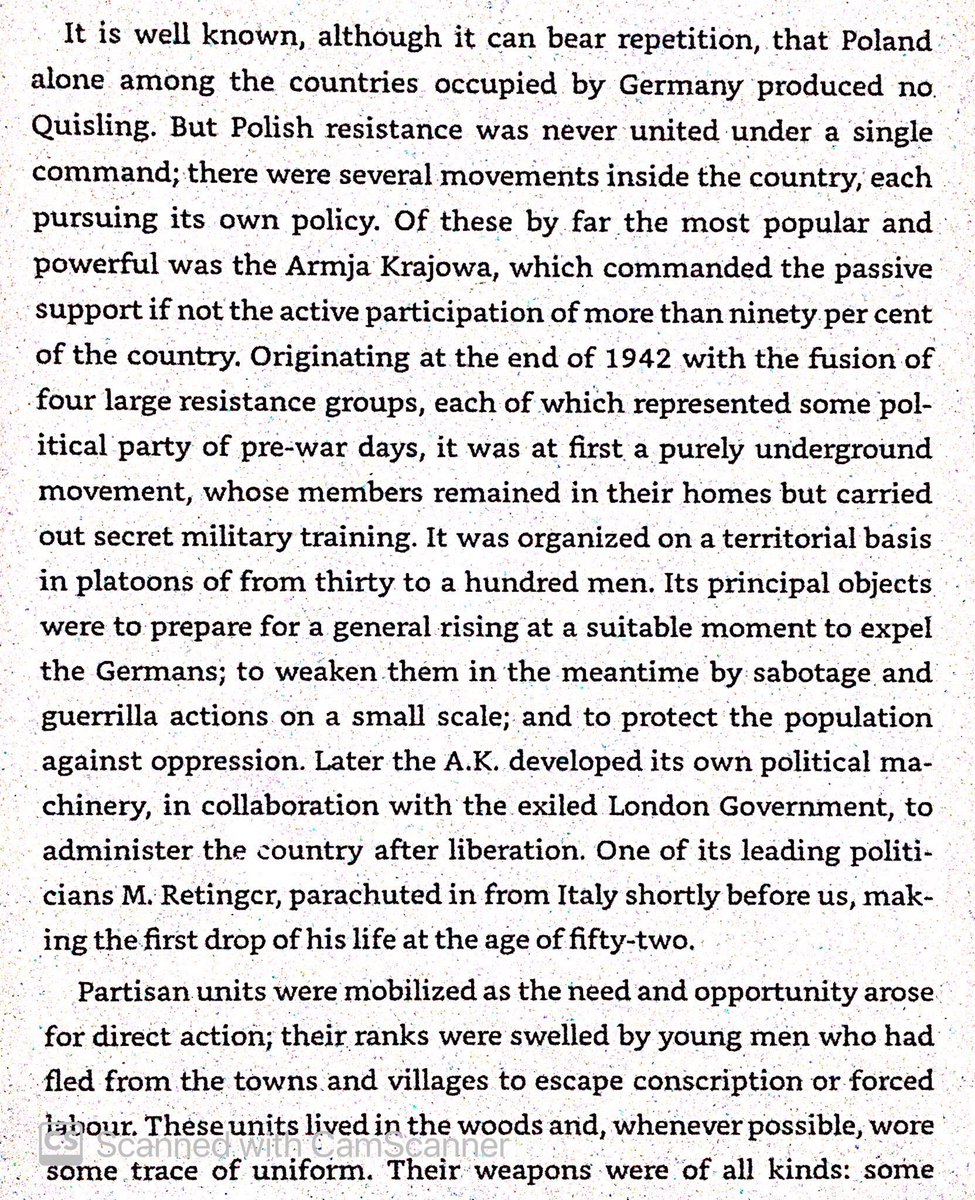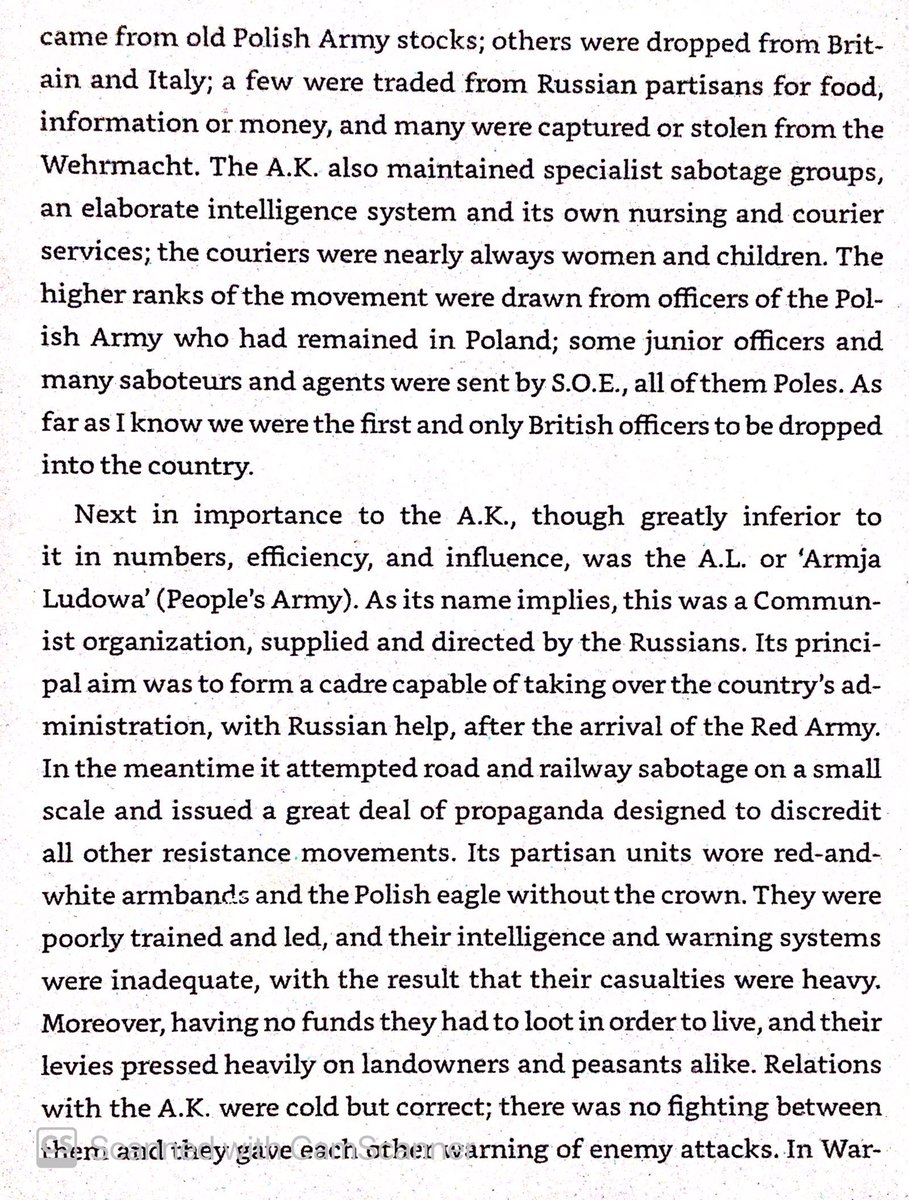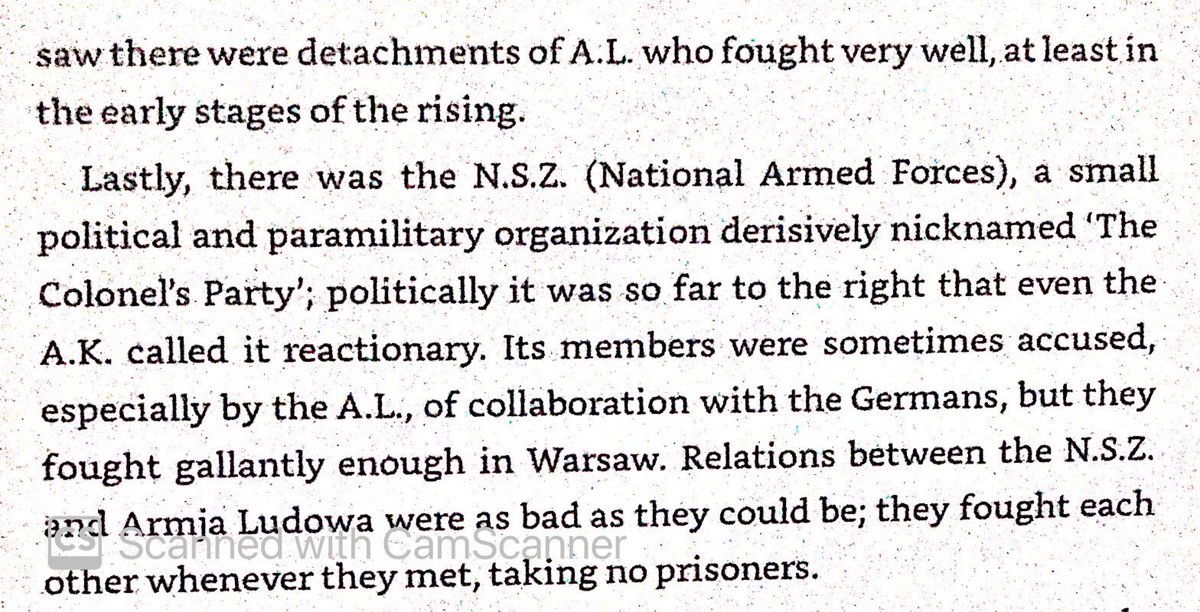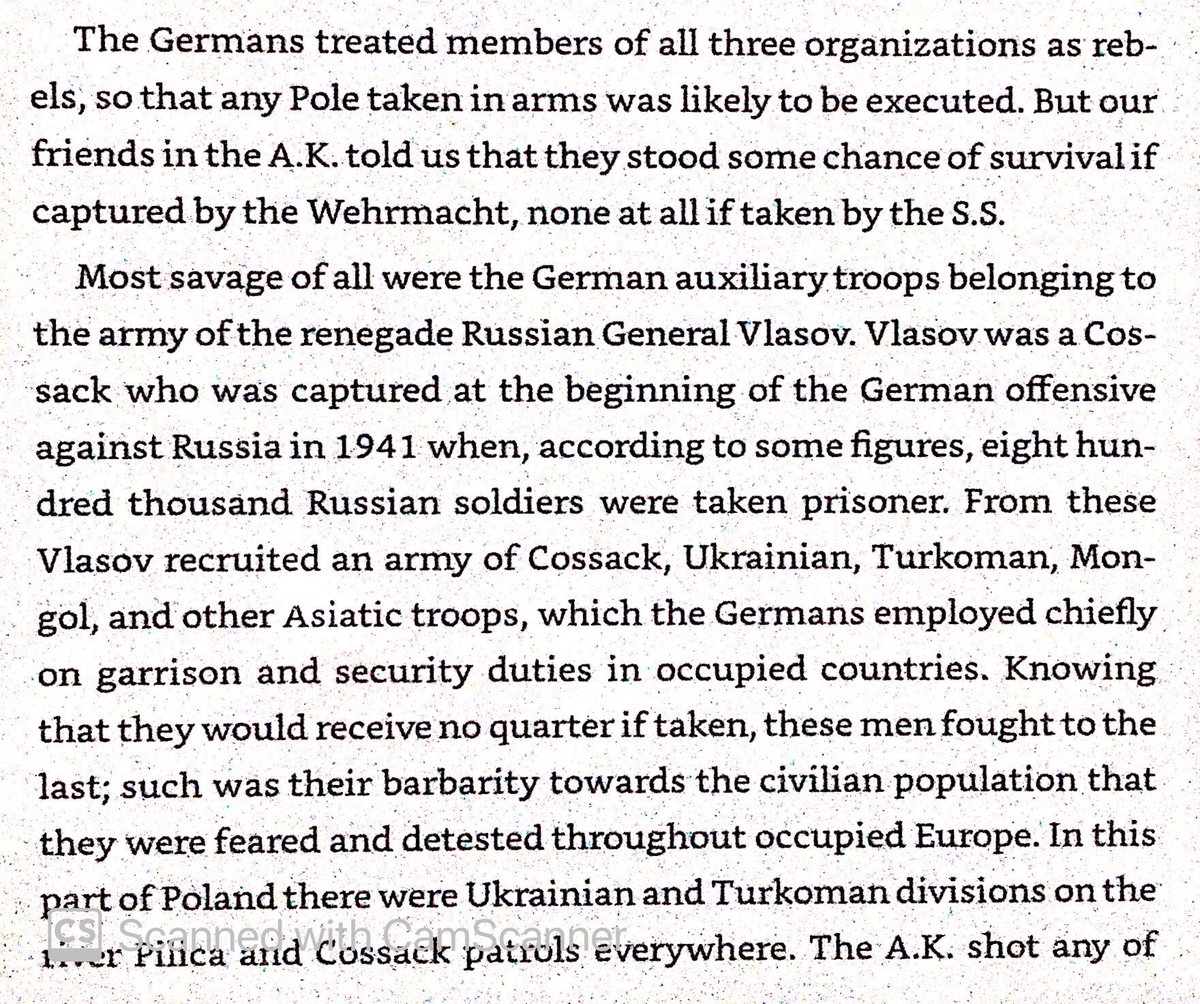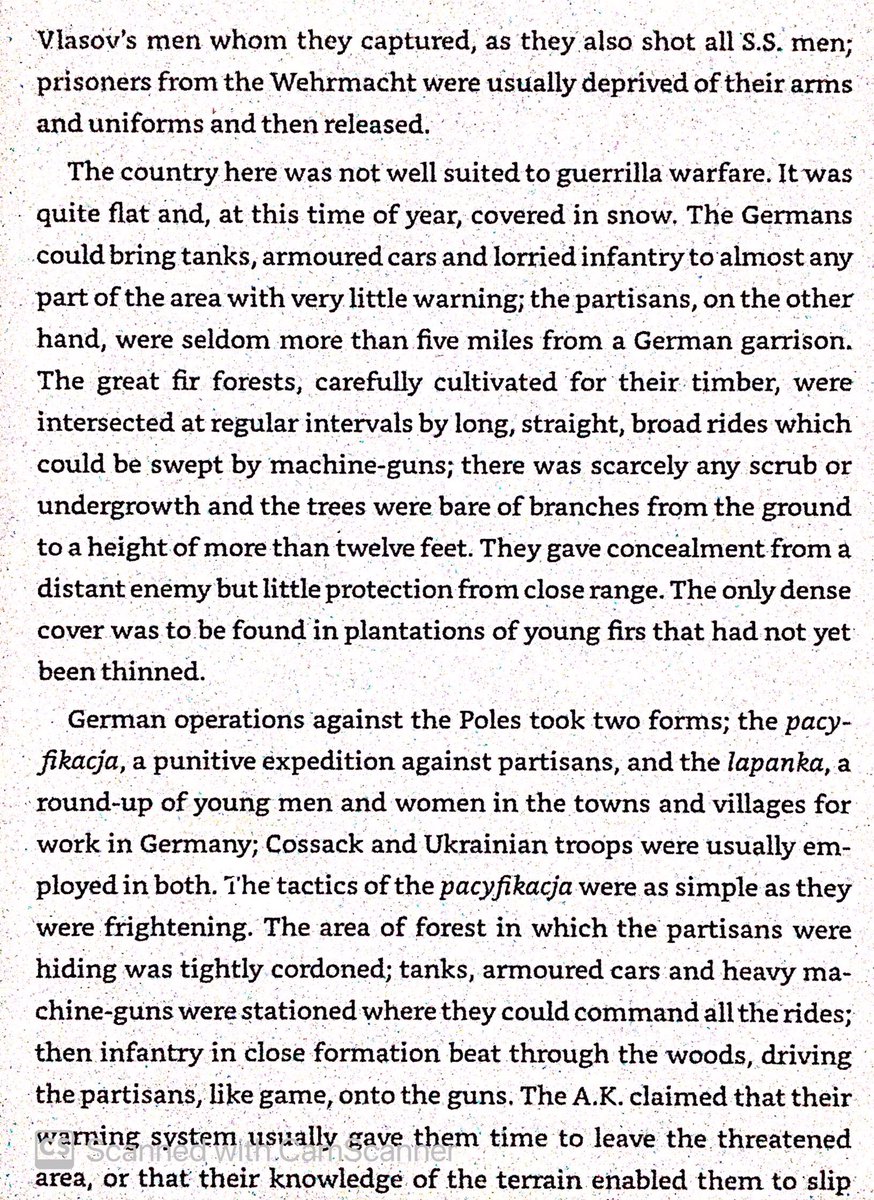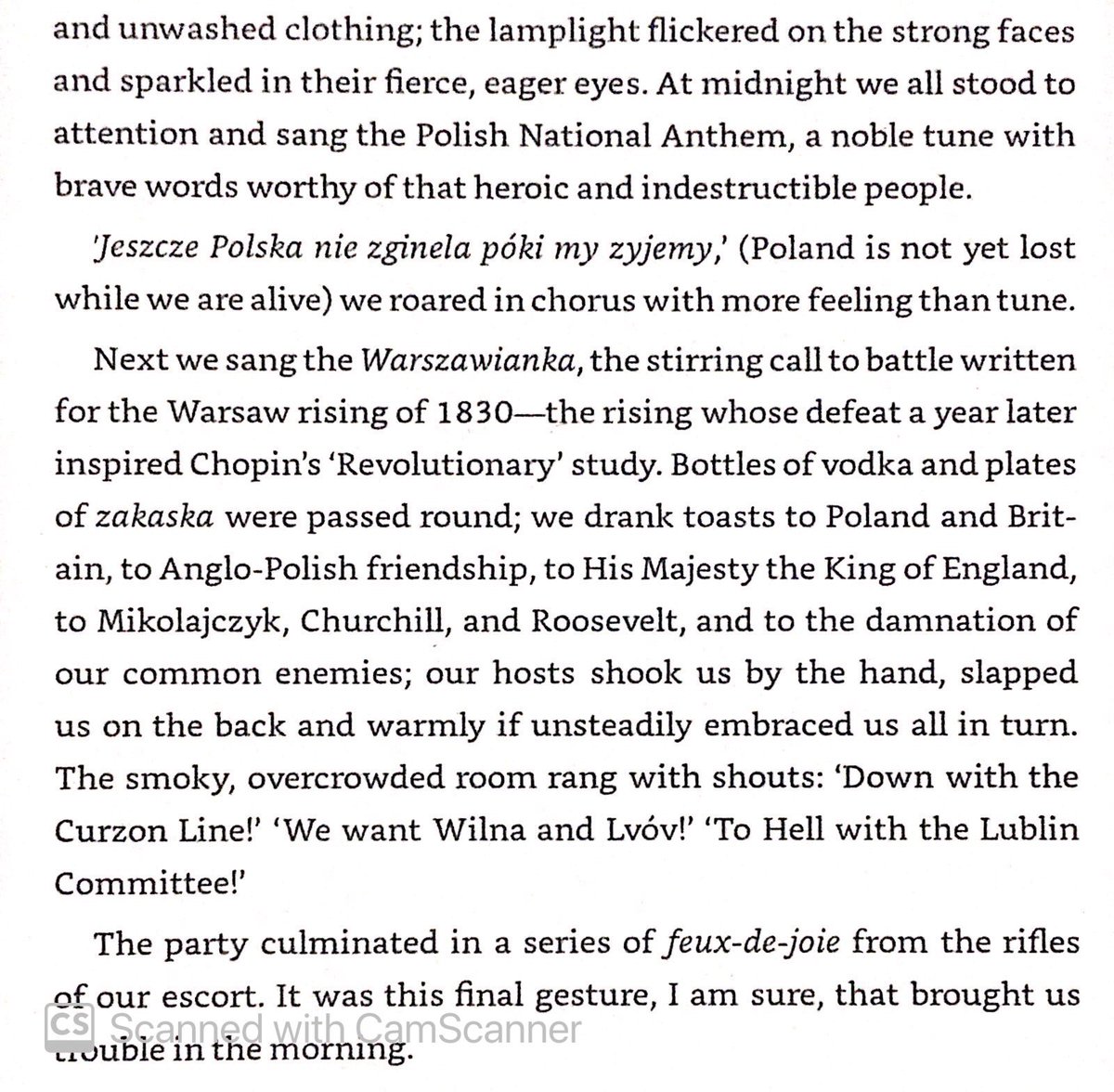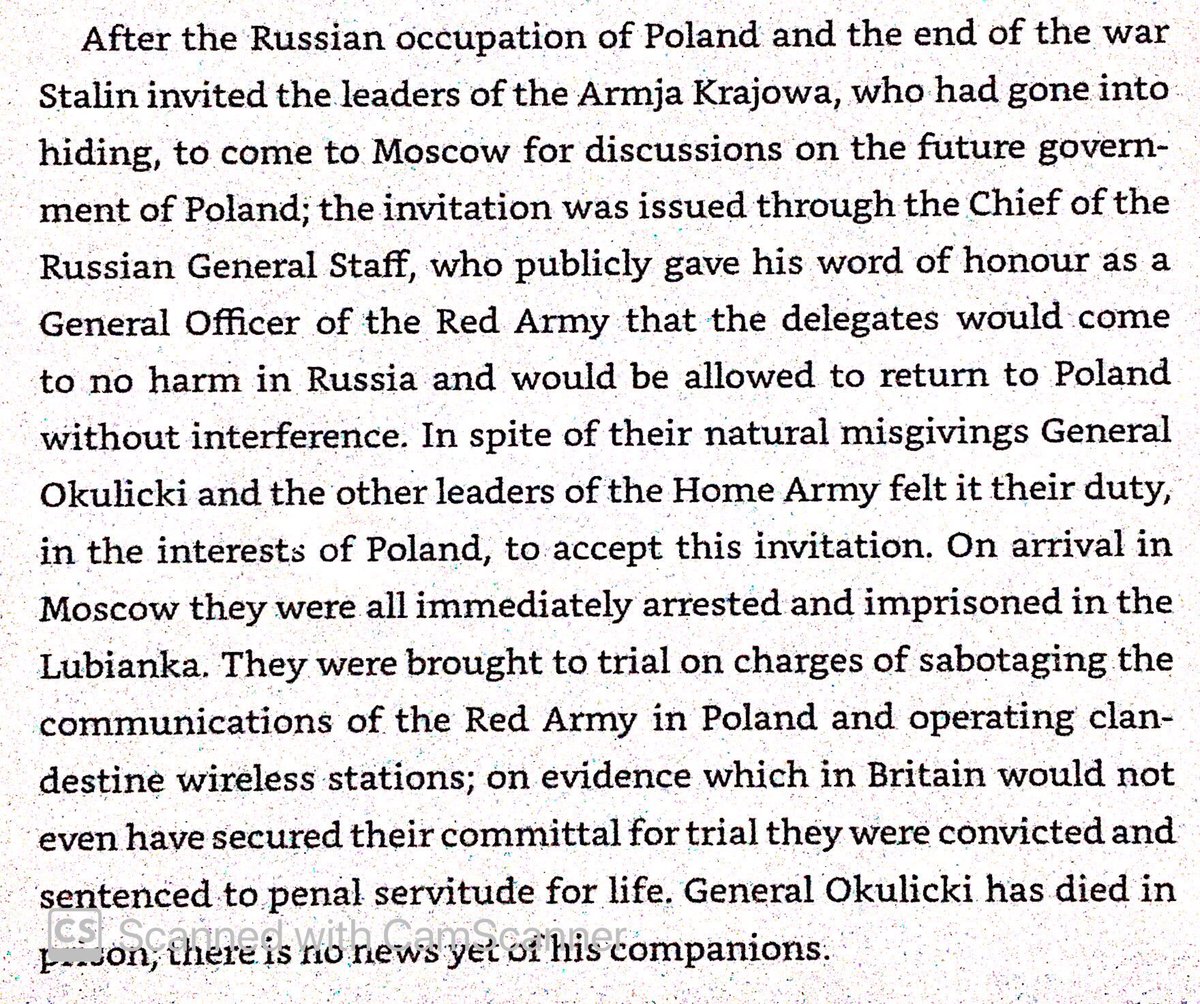Long out of print, this book was recently republished by the excellent publishing company @MysteryGrove, which works to make lost classics available. You can purchase the book & support their efforts here: https://www.amazon.com/gp/product/B08CBLWK5N/ref=ppx_yo_dt_b_d_asin_title_o01?ie=UTF8&psc=1
Norway campaign showed British the opportunity of irregular warfare. They put together a training cadre of men who had served in various conditions - African bush, Arctic, Hindu Kush, etc - to put together an irregular force.
Special Operations Executive (SOE) was tasked with subverting Axis-held territory. It was headed by businessmen & bankers, & priorities were set by Minister of Economic Warfare.
SOE included numerous foreigners of varying quality. Czechs were excellent, Spanish leftists were not.
Kemp & his team walk across a field in occupied France & find a German sign declaring that the field is mined. They were fortunate to not step on one by accident.
British in WWII would put explosives in children’s toys, fake animal dung, & fake dead rats. Wonder if the Soviets were inspired by this - they used similar tactics in their war in Afghanistan 40 years later.
Chetniks & Communists in Yugoslavia were both enemies of the Germans, but spent much of their time fighting each other. British mostly preferred the Chetniks, but some preferred the Communists.
Britain’s Albanian section was headed by an SOE veteran from West Africa & an anthropologist who had lived in Albania 20 years, falling in love with the country & writing an English-Albanian grammar.
Albania is mountainous, & divided into two by Shkumbi River, which divides the northern Ghegs from the southern Tosks. North is mostly Catholic, center & plains mostly Moslem, south mostly Orthodox with Moslem landholders.
Albania aligned with Austria against their mutual Serb enemies in WWI, resulting in an Austro-Italo-Serb occupation. The postwar situation was chaotic, but King Zog was able to unify  in 1924 with support of Yugoslav government, his own northern territory & Gheg allies.
in 1924 with support of Yugoslav government, his own northern territory & Gheg allies.
 in 1924 with support of Yugoslav government, his own northern territory & Gheg allies.
in 1924 with support of Yugoslav government, his own northern territory & Gheg allies.
The communist influenced Partisans were mostly Tosks. Through skillful diplomacy, they were able to align three Gheg chieftans into the “National Liberation Movement”, or LNC. Communists were able to leverage LNC to gain influence in Gheg areas & organizations.
National Front was a nationalist & republican resistance movement largely comprised of teachers, professionals, merchants, non-communist intellectuals, landholders, & their retainers. They feared loss of Kosovo in event of Allied victory, as well as communist takeover.
One Albanian prime minister was a merciless communist guerilla & veteran of the International Brigades in Spanish Civil War.
Brutal reprisals by an occupation force against a sedentary civilian population after insurgent attacks are an effective means of demoralizing the sedentary people & creating a collaborative class.
Blood feuds & guest protection were both taken extremely seriously by both Tosks & Ghegs. Feuds could carry on for generations & result in deaths of many family members.
British tried to unite the LNC (Partisans) & National Front against the Axis. LNC denounced the agreement & destroyed the National Front, leaving their LNC as the sole resistance movement.
Kosovo was heart of medieval Serbia, but was mostly Albanian by 1940s. Kosovar Albanians preferred German rule & unity of Albanians to a return of Yugoslav rule, & feared that the Allies would support the Yugoslav claims to Kosovo.
Partisans were very unpopular in Kosovo - they were viewed as Slavic imperialists despite their professed internationalism.
German anti-insurgency operations in winter 1943 crippled the Partisans for 4 months. Forced into thr high mountains, Albanians & the cold took their toll.
In 1944 the LNC communists overran Albania & Kosovo, killing friends of the British as well as Albanian irredentists.
Poland had three main resistance groups - the largest was Armja Krajowa (AK), the next was the communist Armja Ludowa (AL), & smallest the reactionary NSZ (National Armed Forces).
German occupation of Poland was cruel. Galician, Cossack, Turkmen, & Kalmyk auxiliaries were deployed alongside regular army soldiers or SS to destroy resistance units or collect slaves.
The Poles during WWII refused to accept that Vilnius & Lvov (ruled by Poland prior to the war) had been given to Lithuanians & Ukrainians respectively.
The Soviets invited the leadership of Armja Krajowa to Moscow after the end of the war. Promised no harm by the Red Army, they were nonetheless arrested & imprisoned.
Overall an enjoyable read on a British special forces man’s operations in France, the Balkans, & Poland. I strongly recommend it - worthwhile as an ethnography as much as an adventure. You can purchase a copy here: https://www.amazon.com/No-Colours-Crest-Struggle-Trilogy/dp/B08BW9FQBF/ref=mp_s_a_1_3?dchild=1&keywords=peter+kemp&qid=1596874530&sr=8-3

 Read on Twitter
Read on Twitter